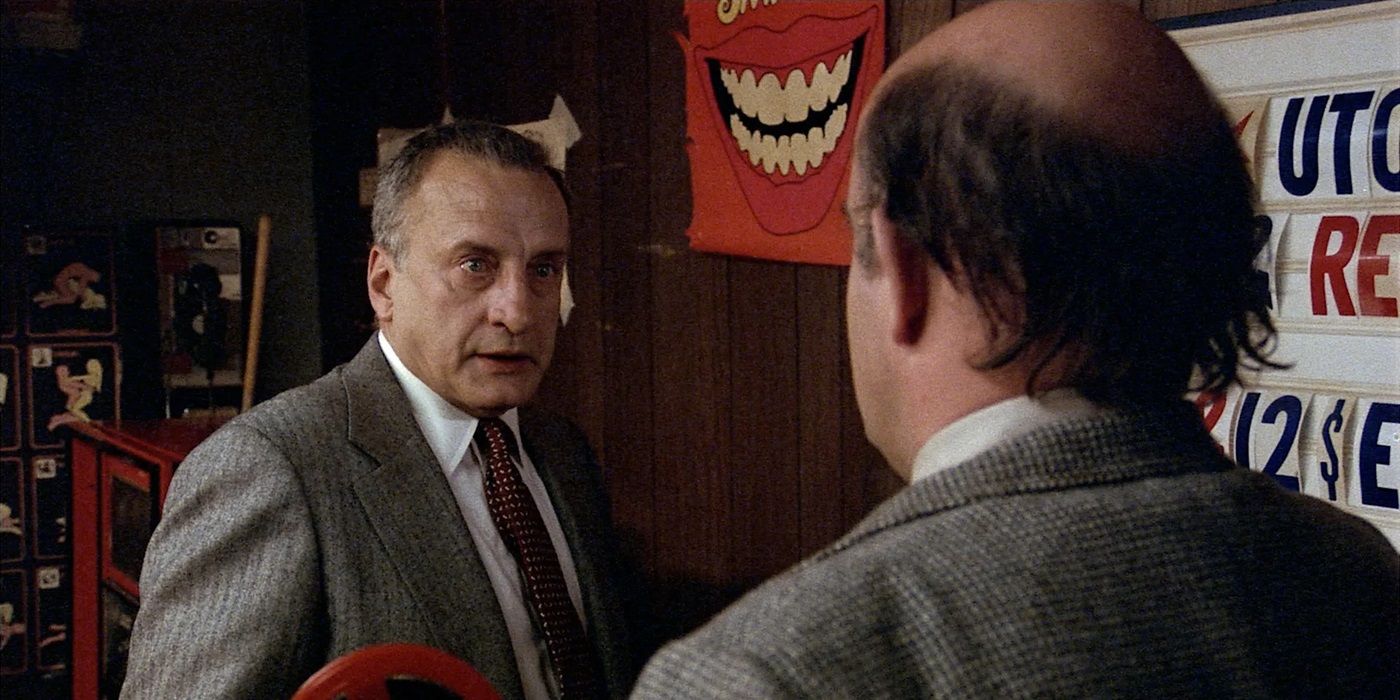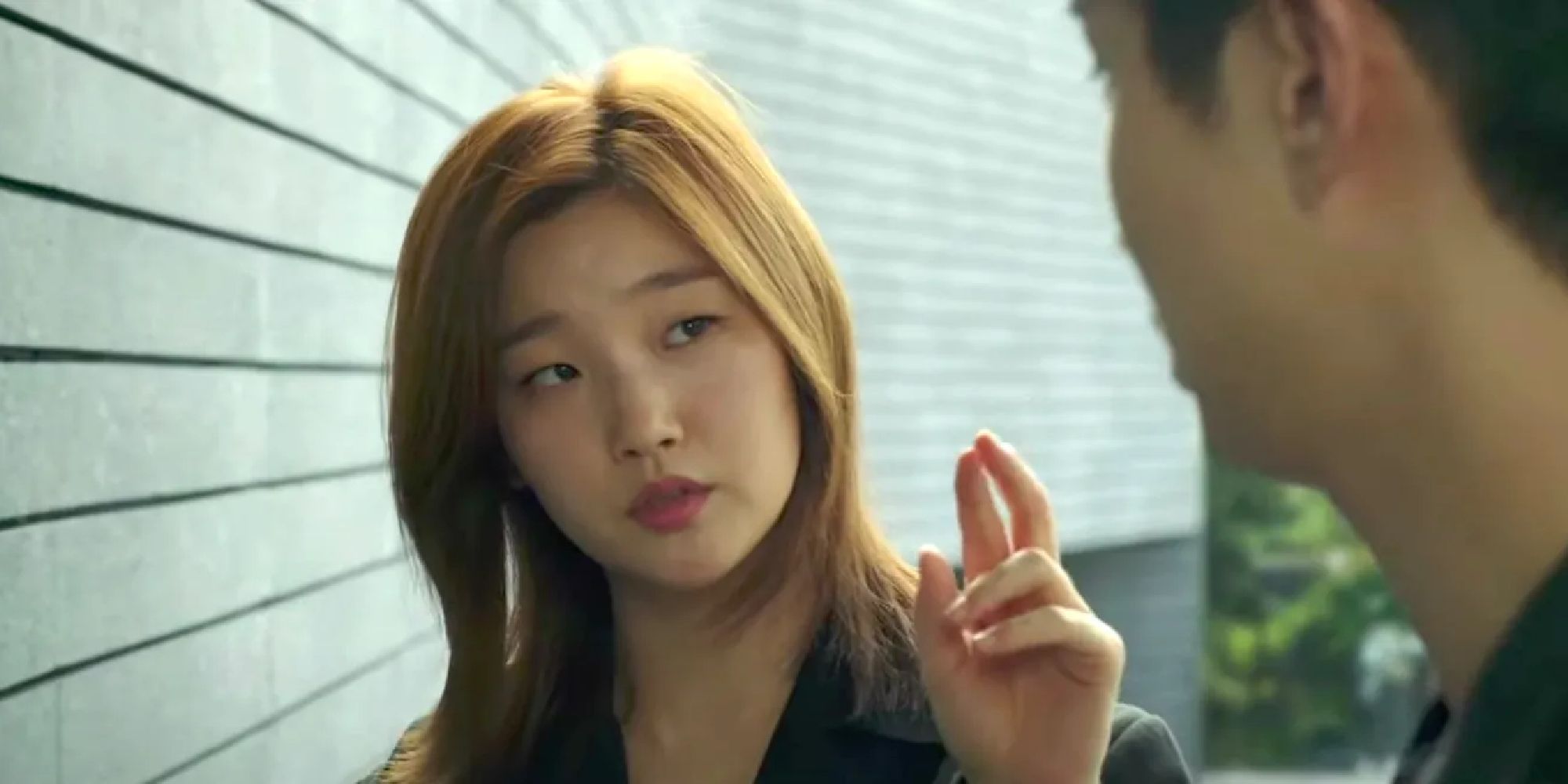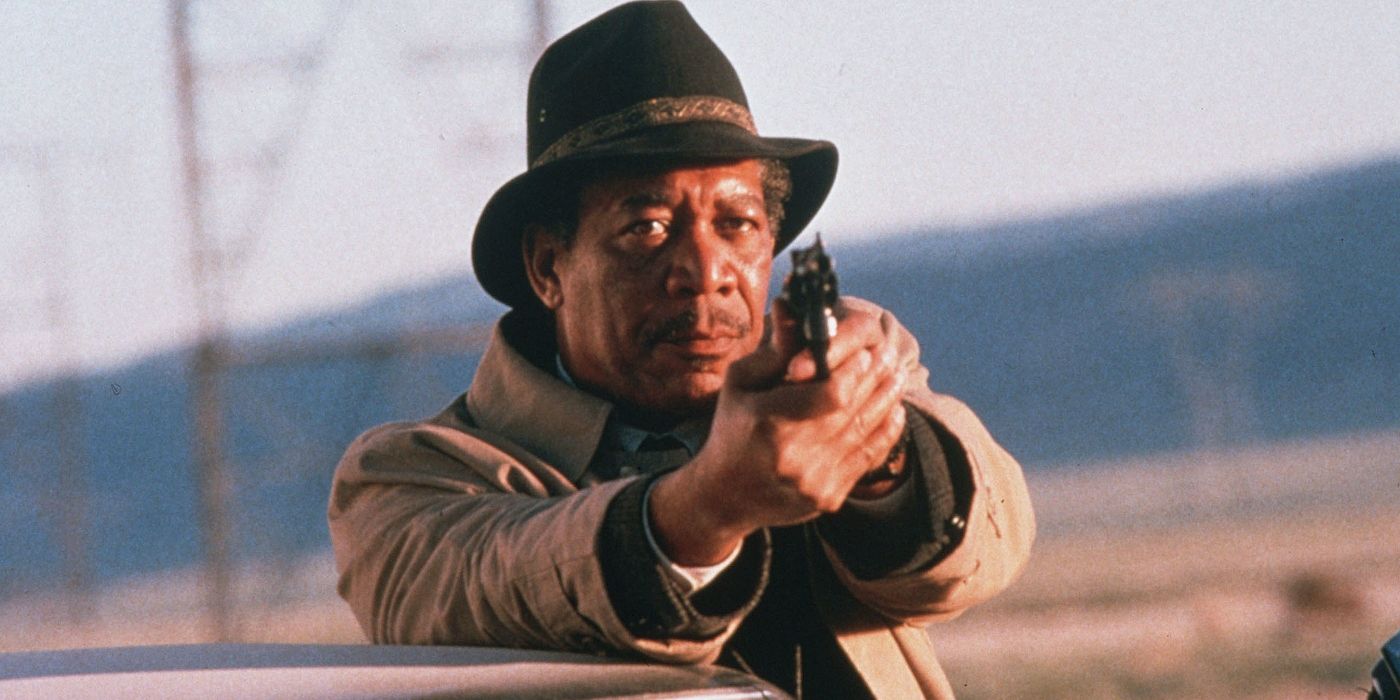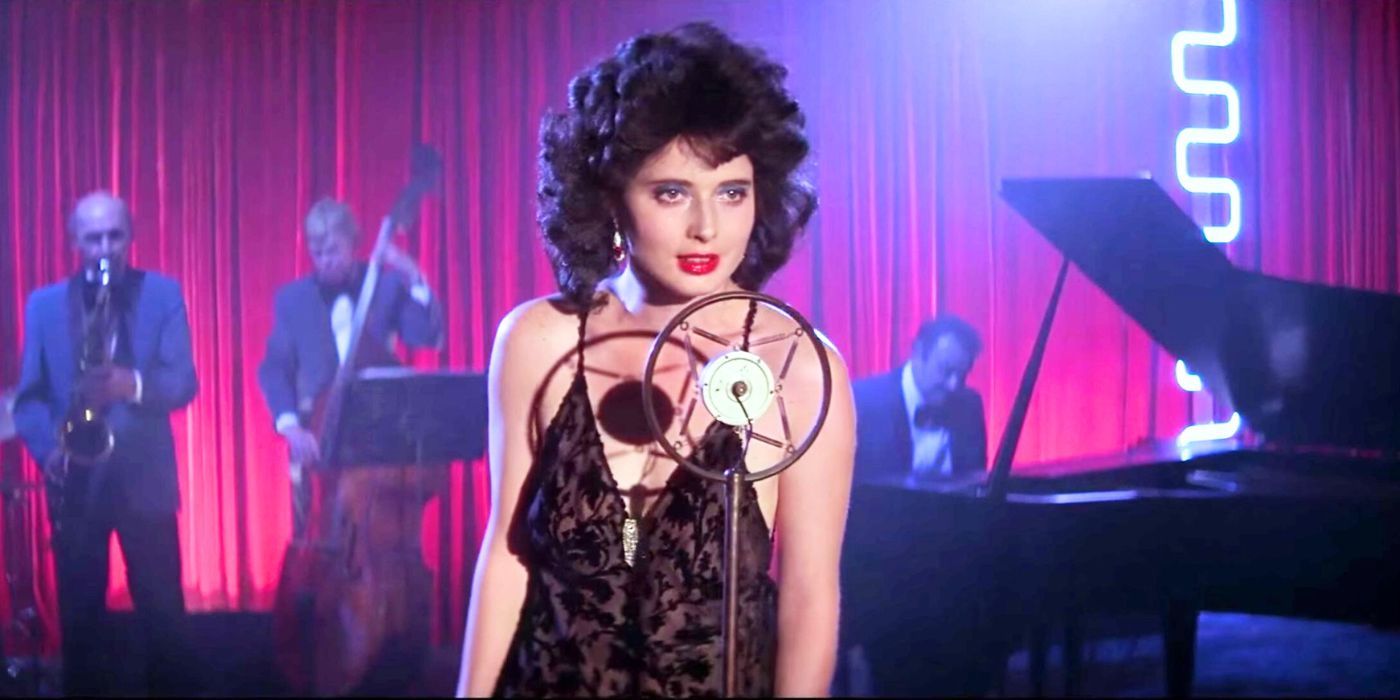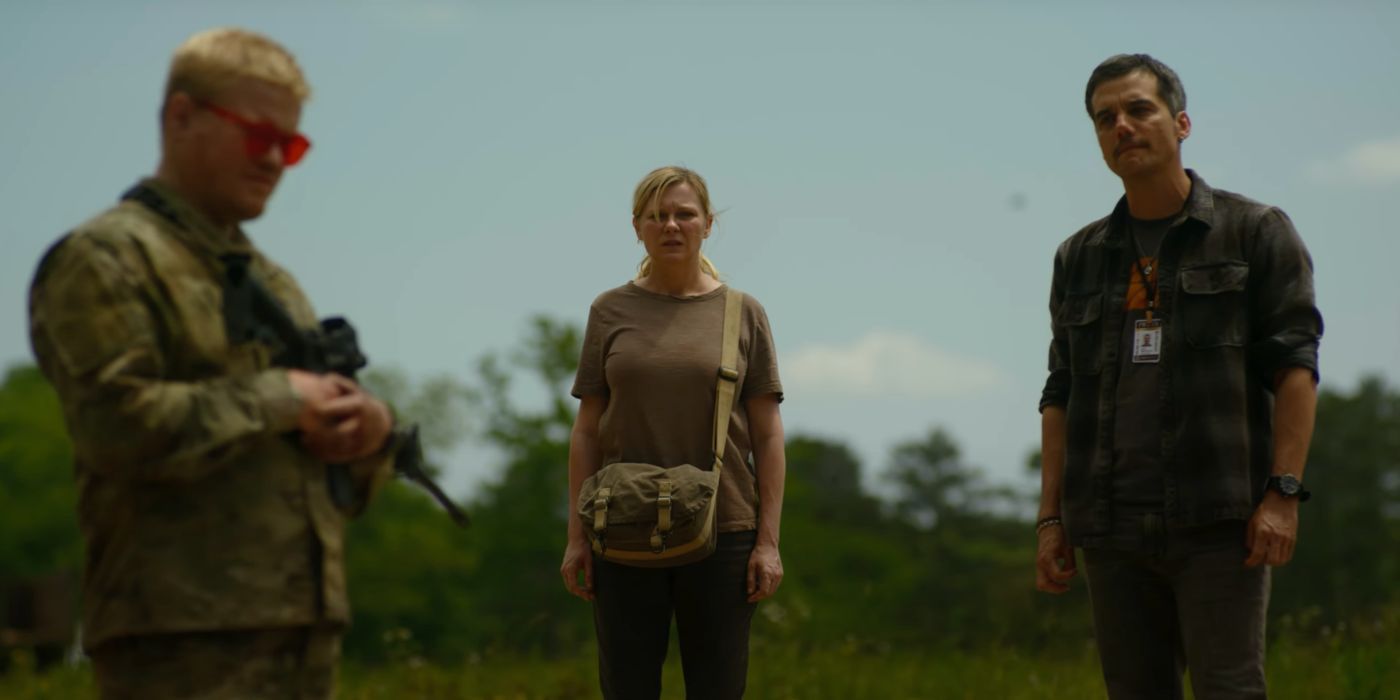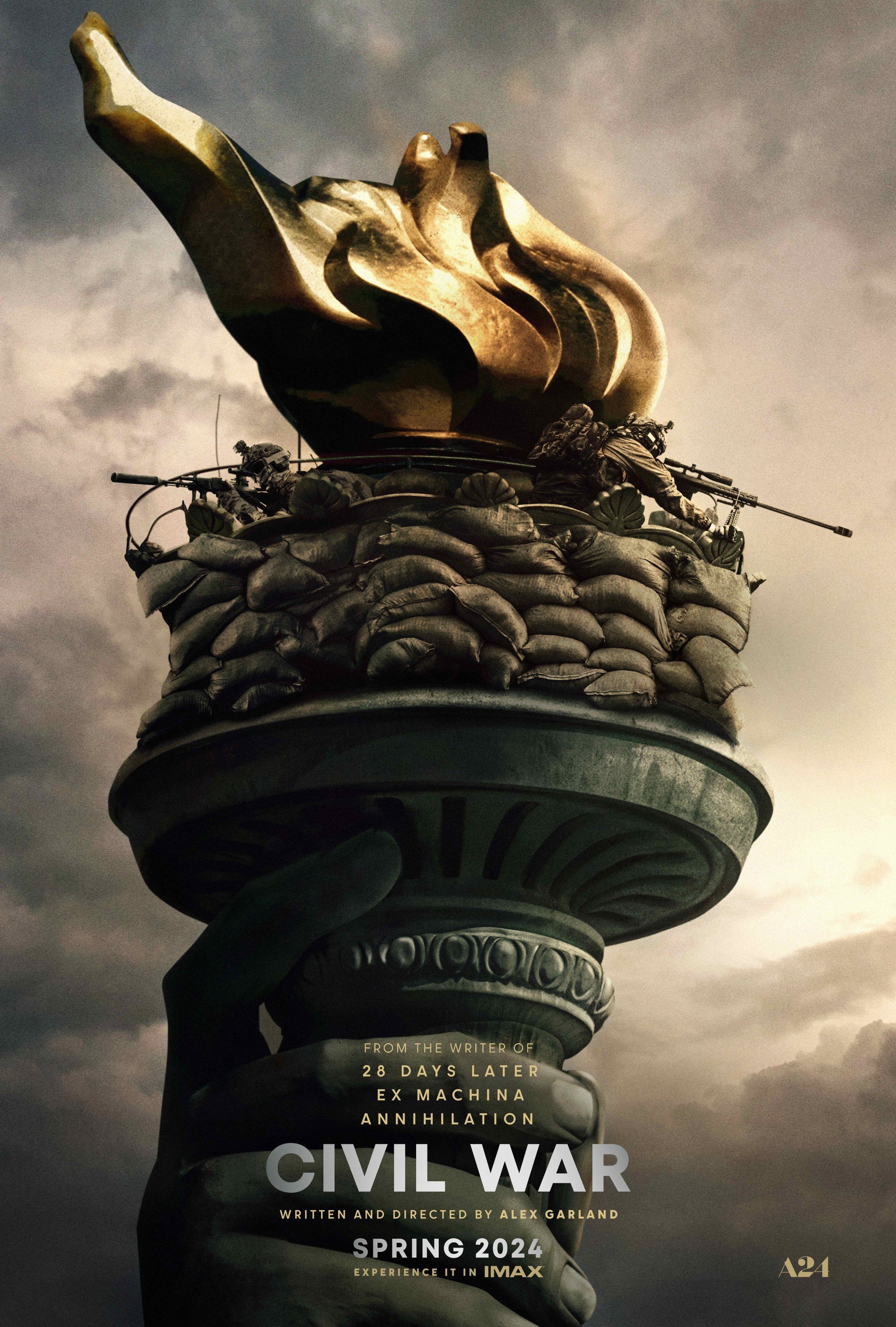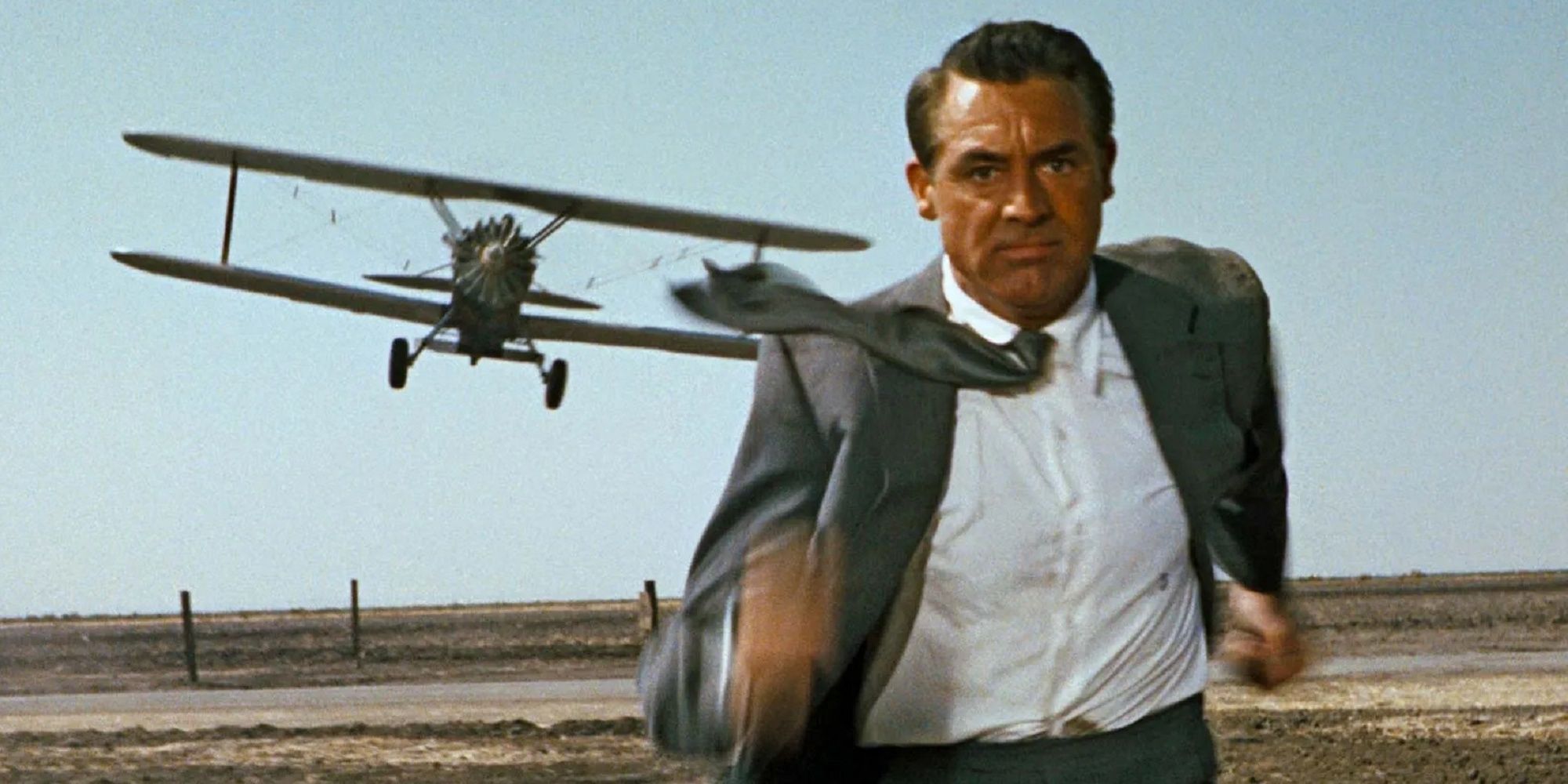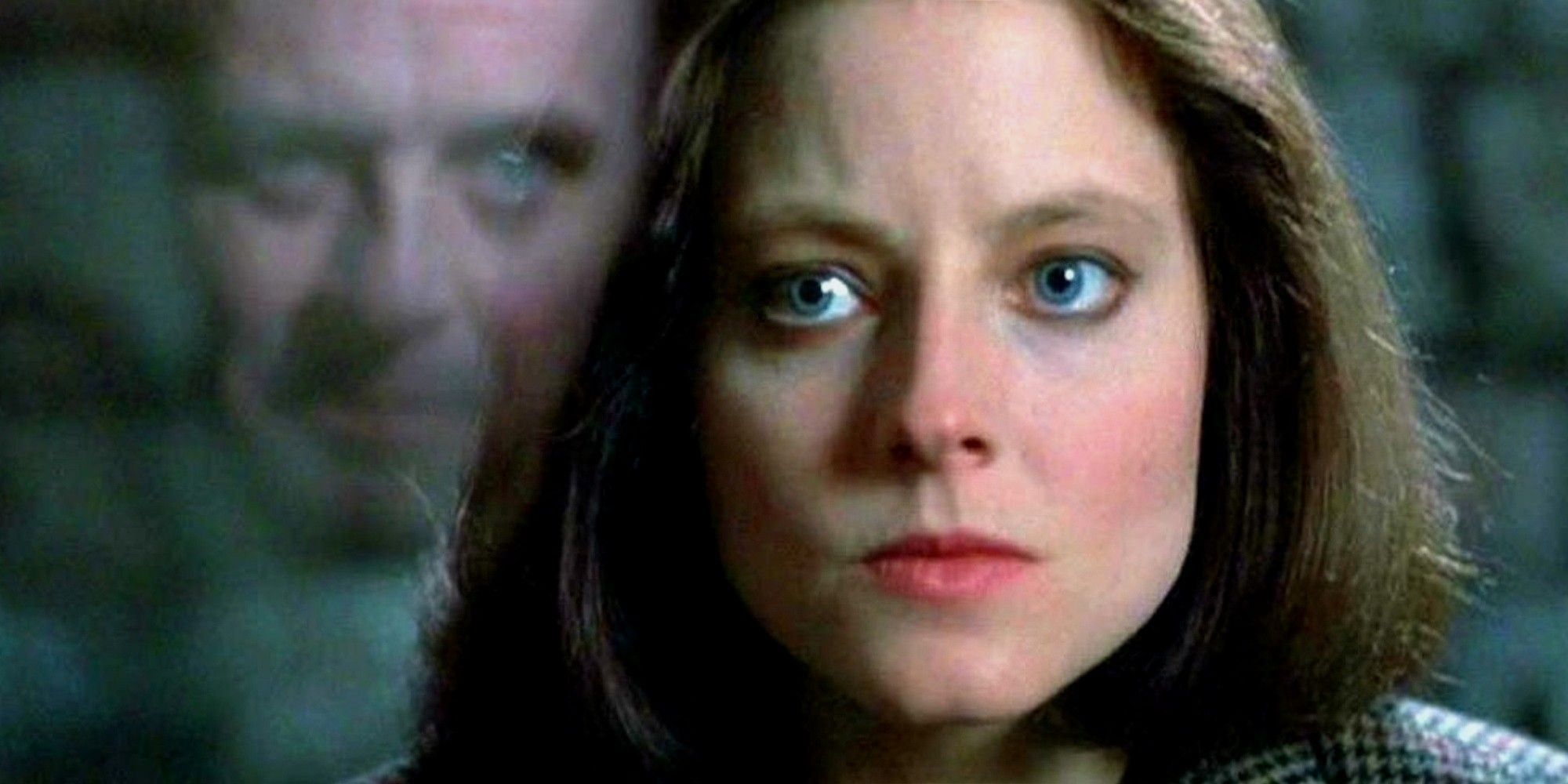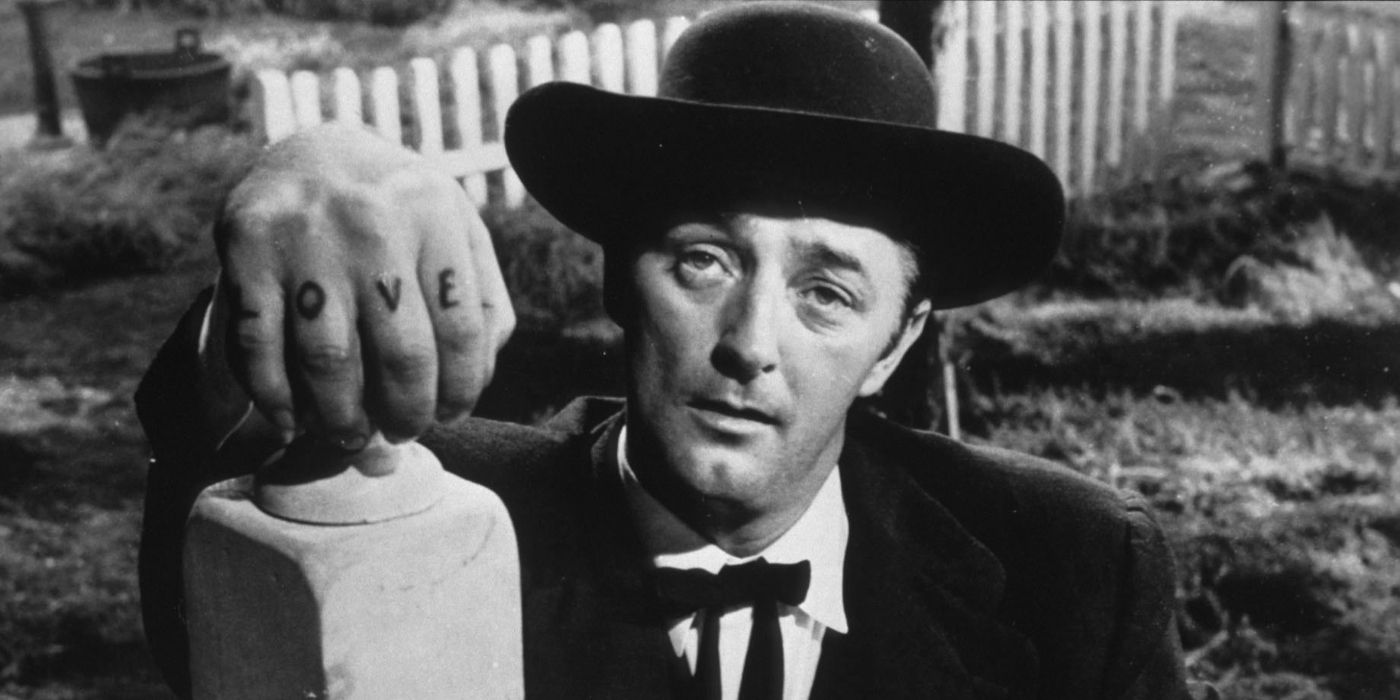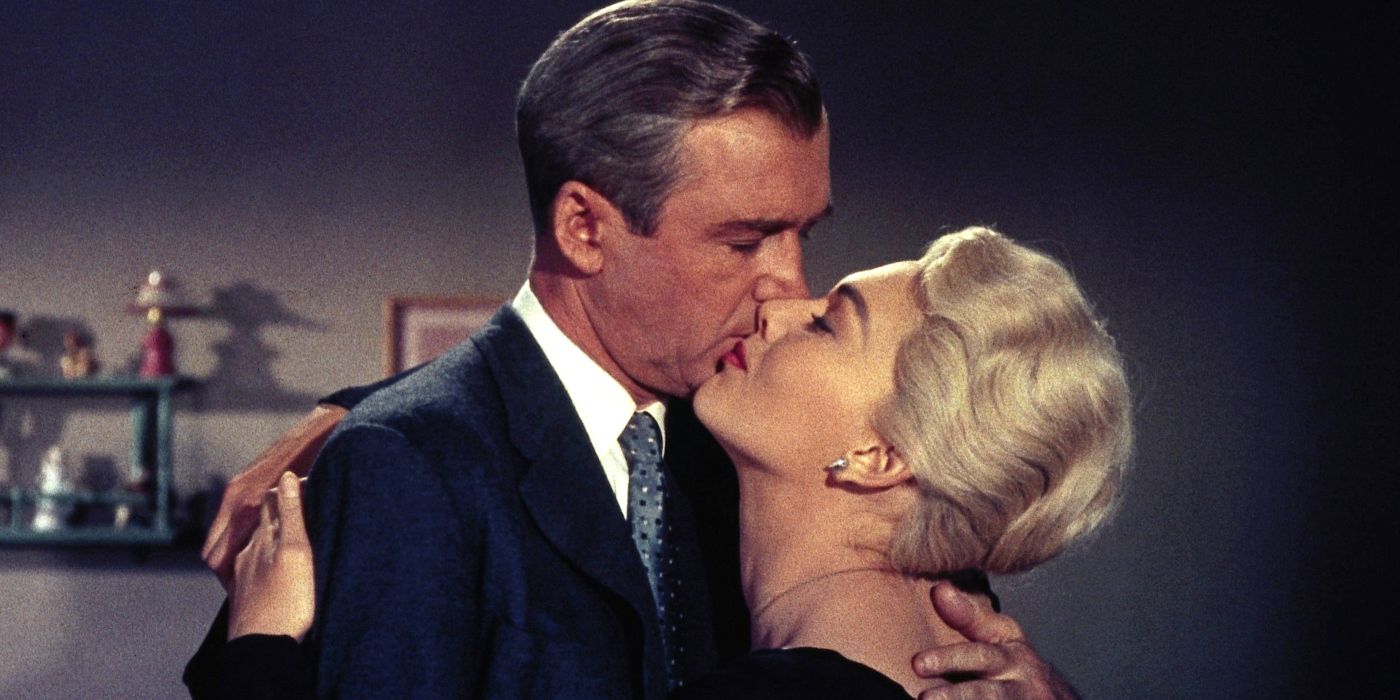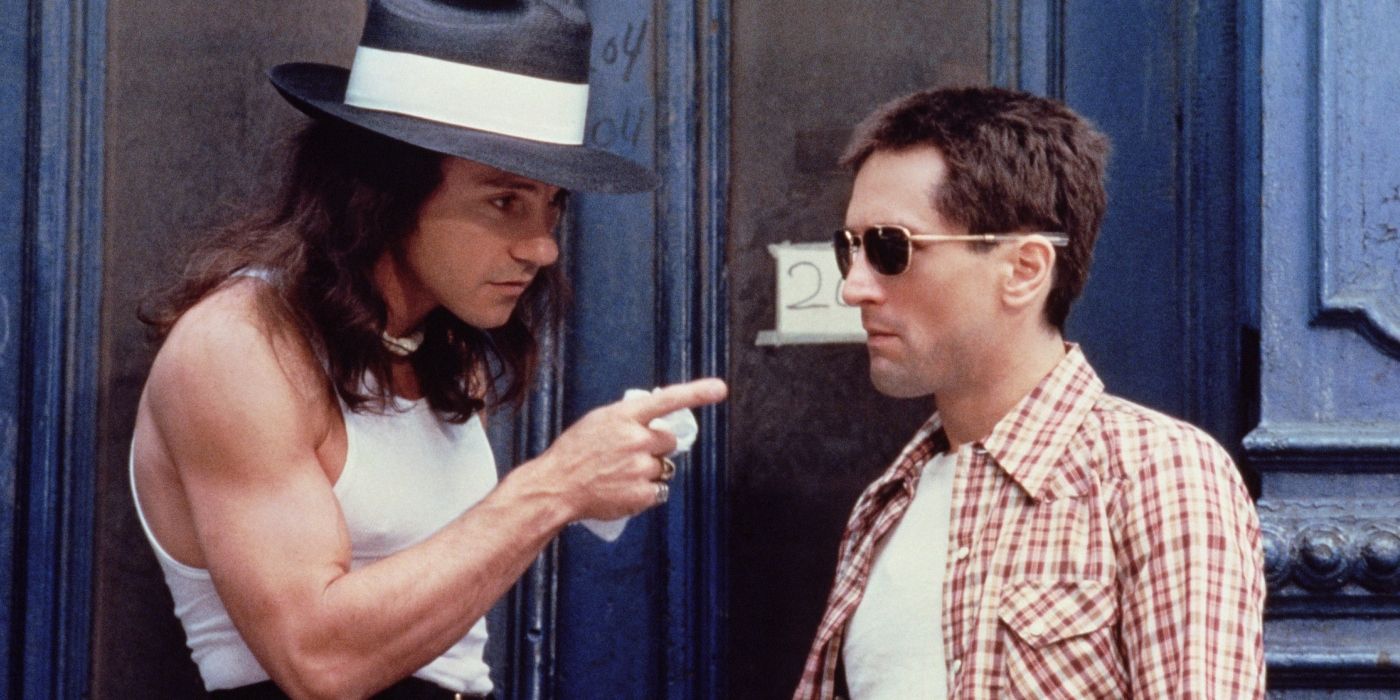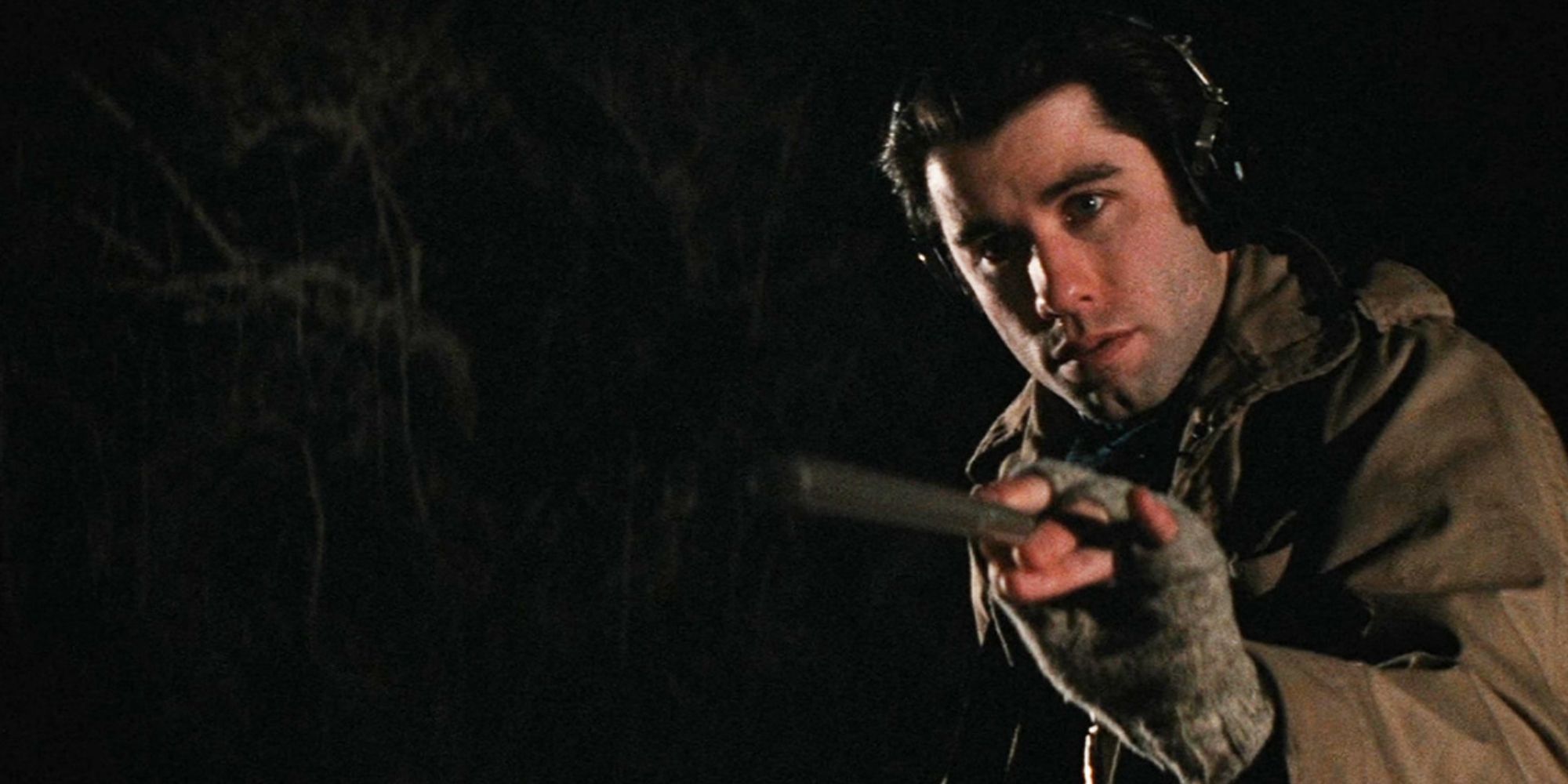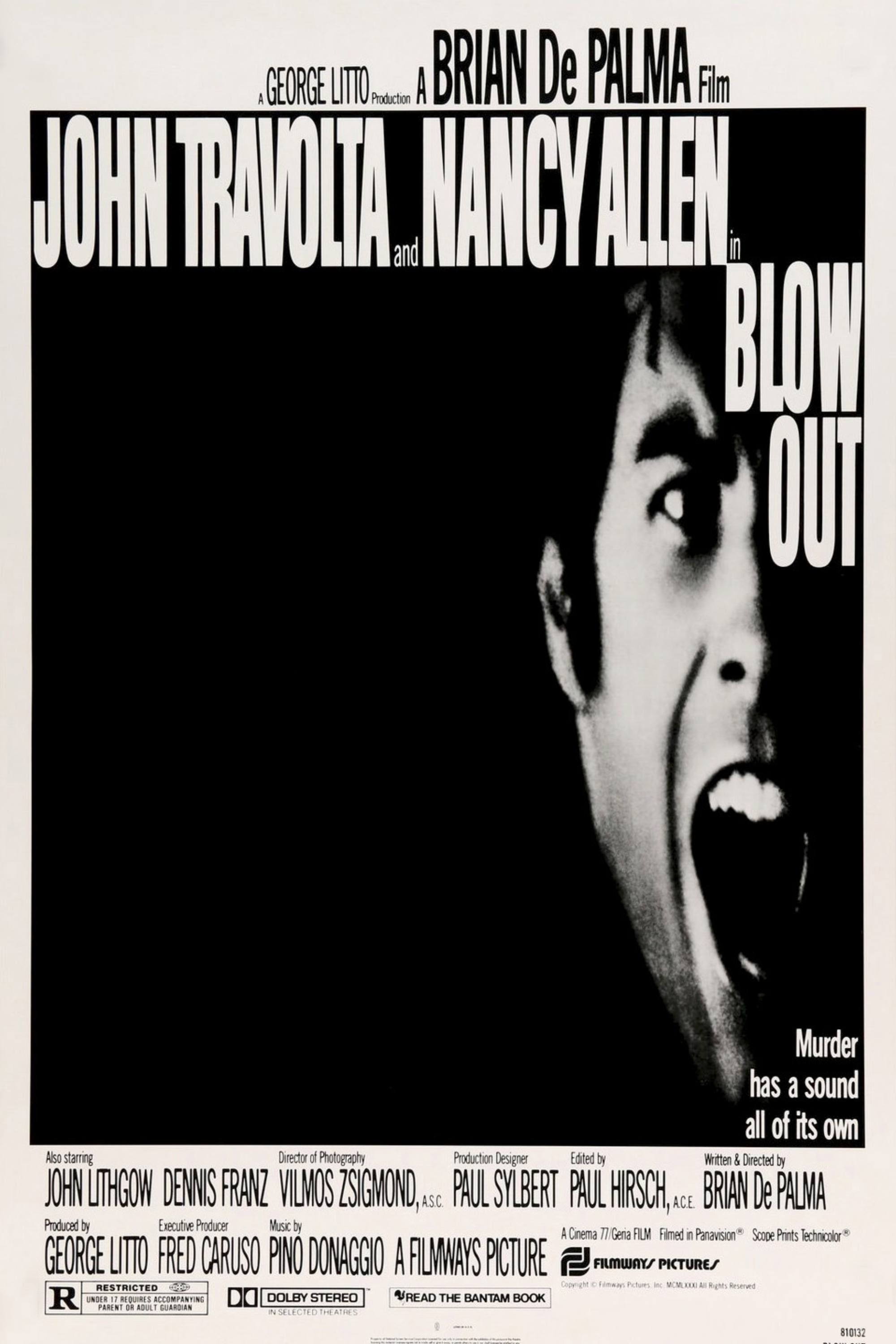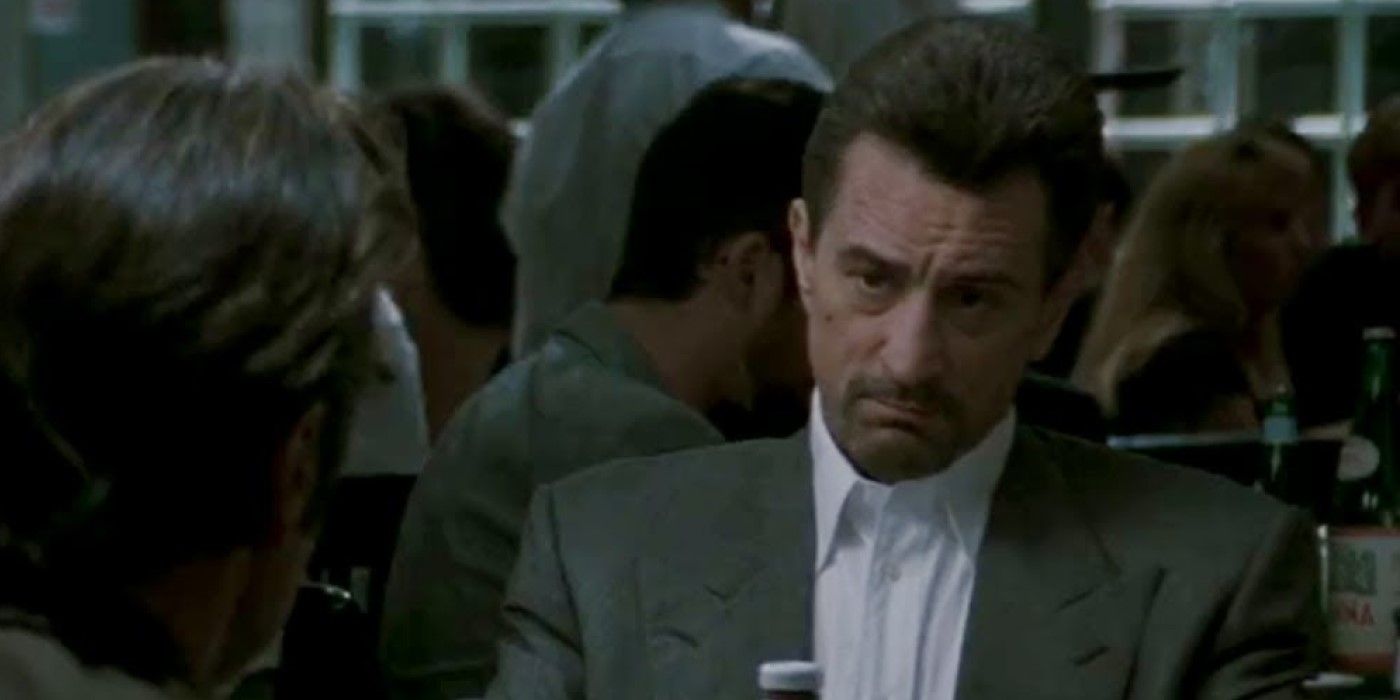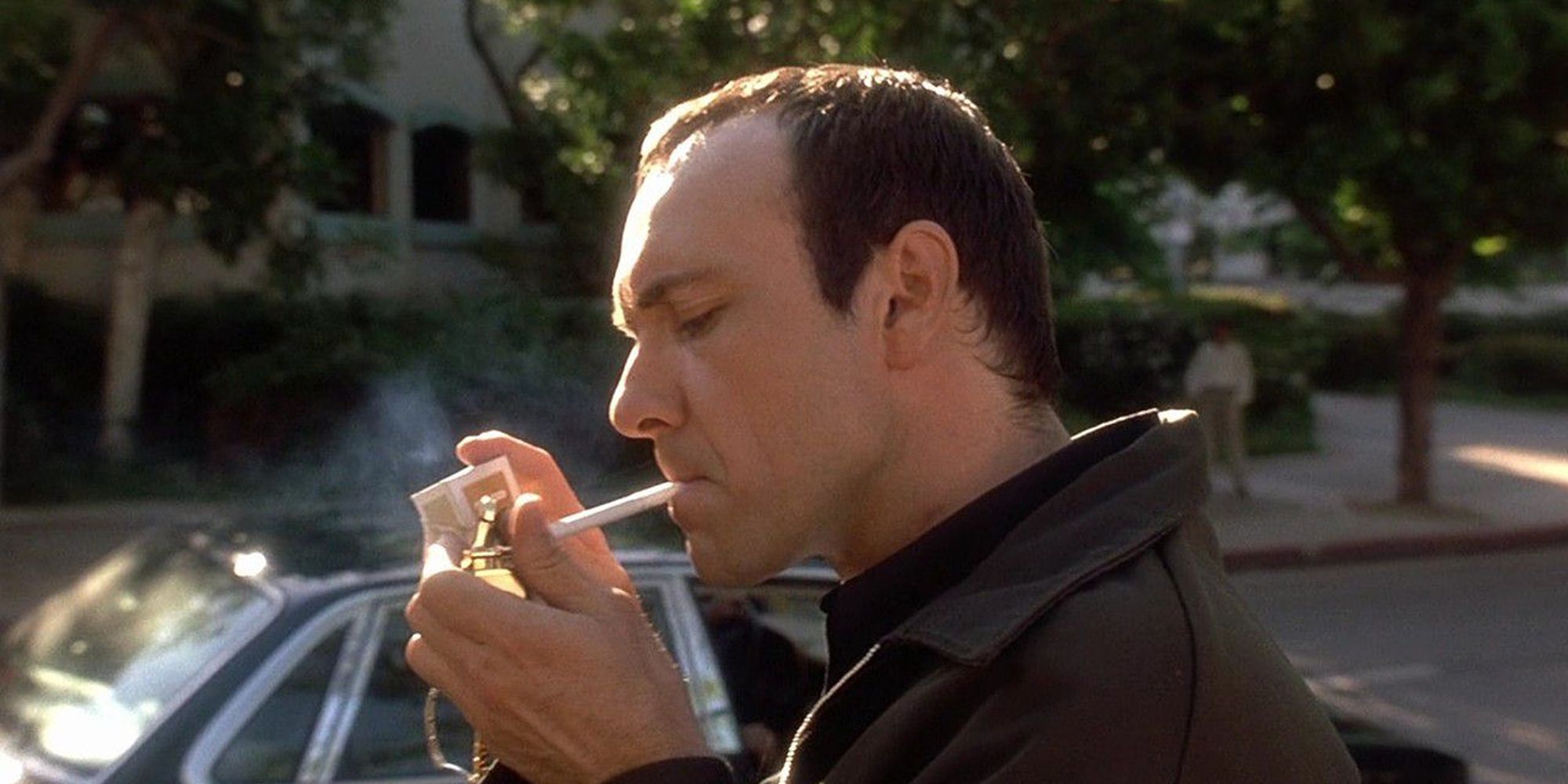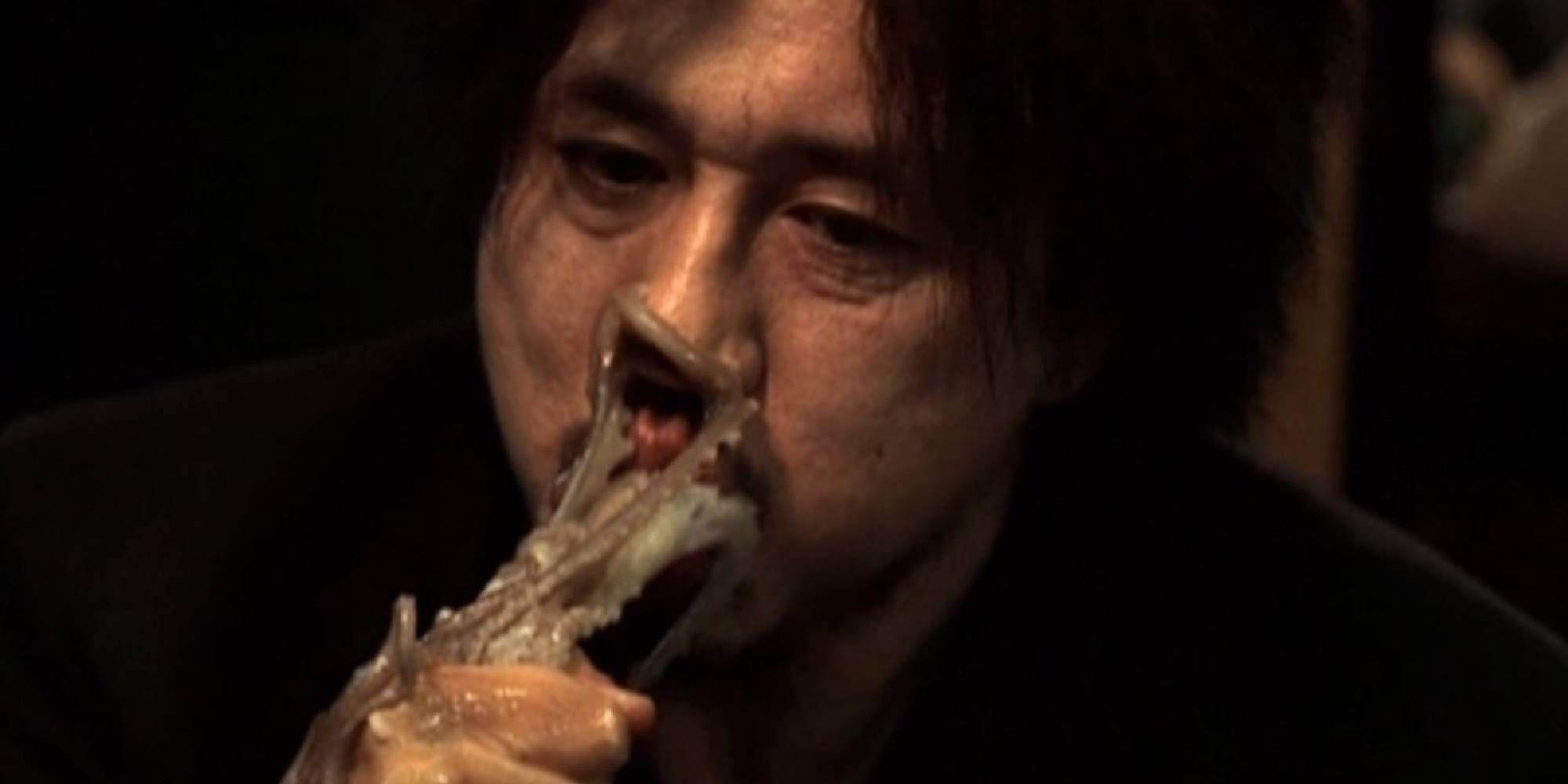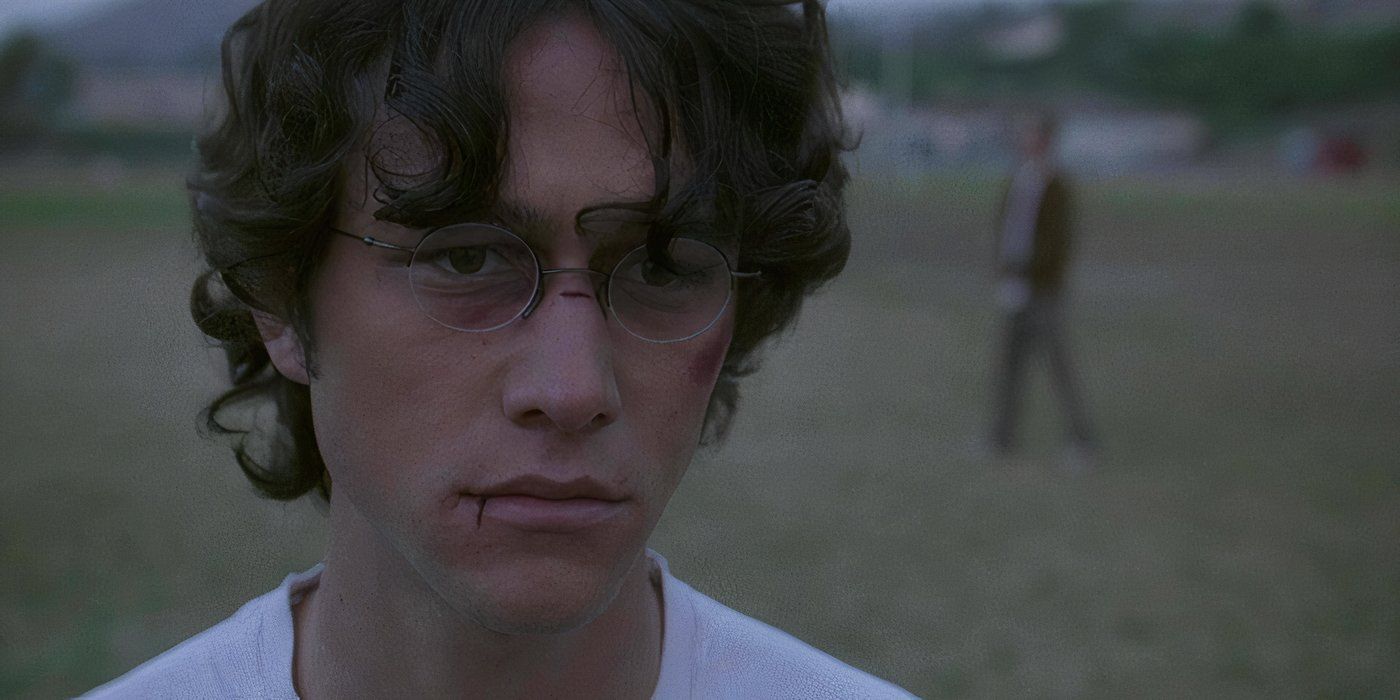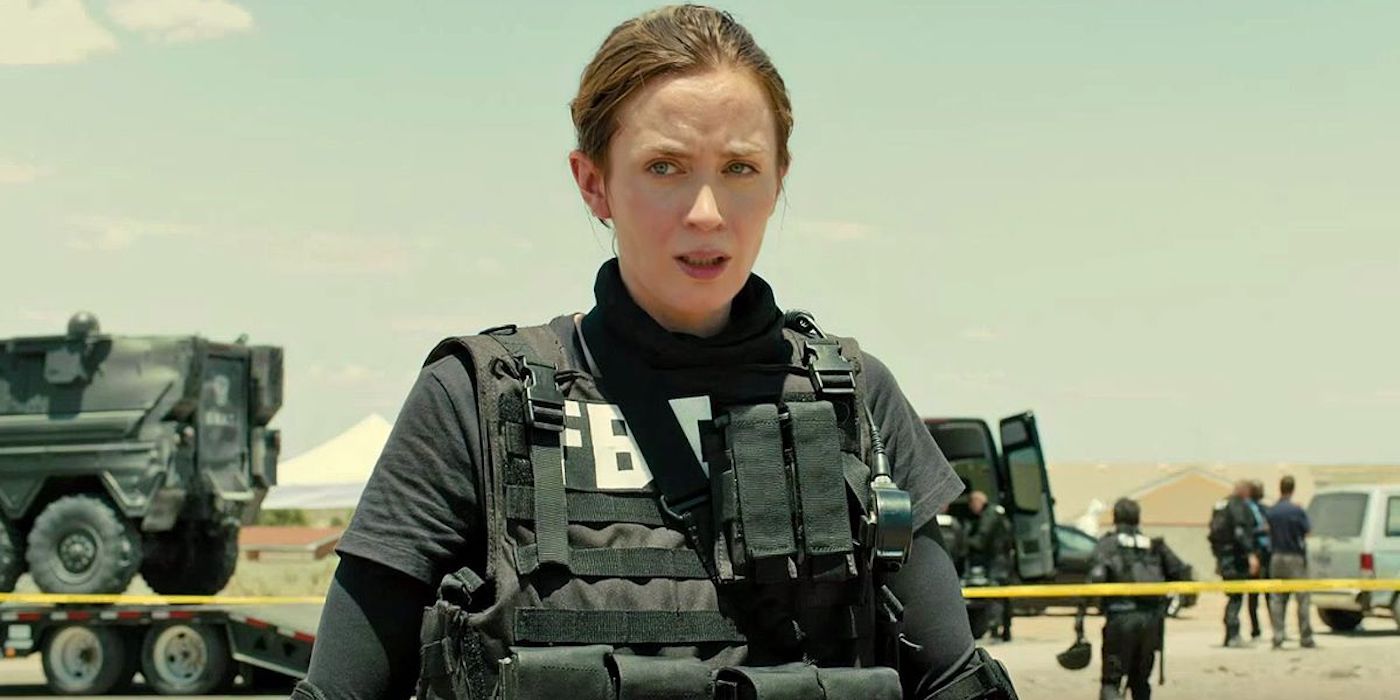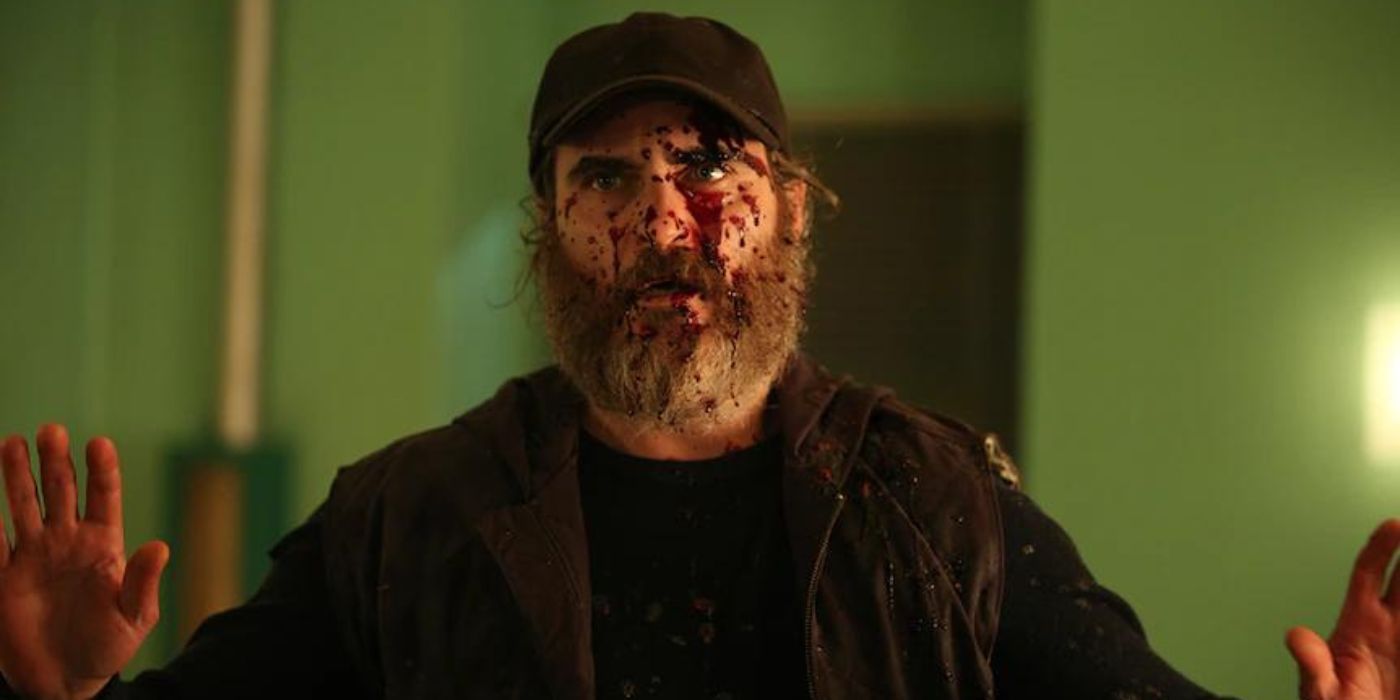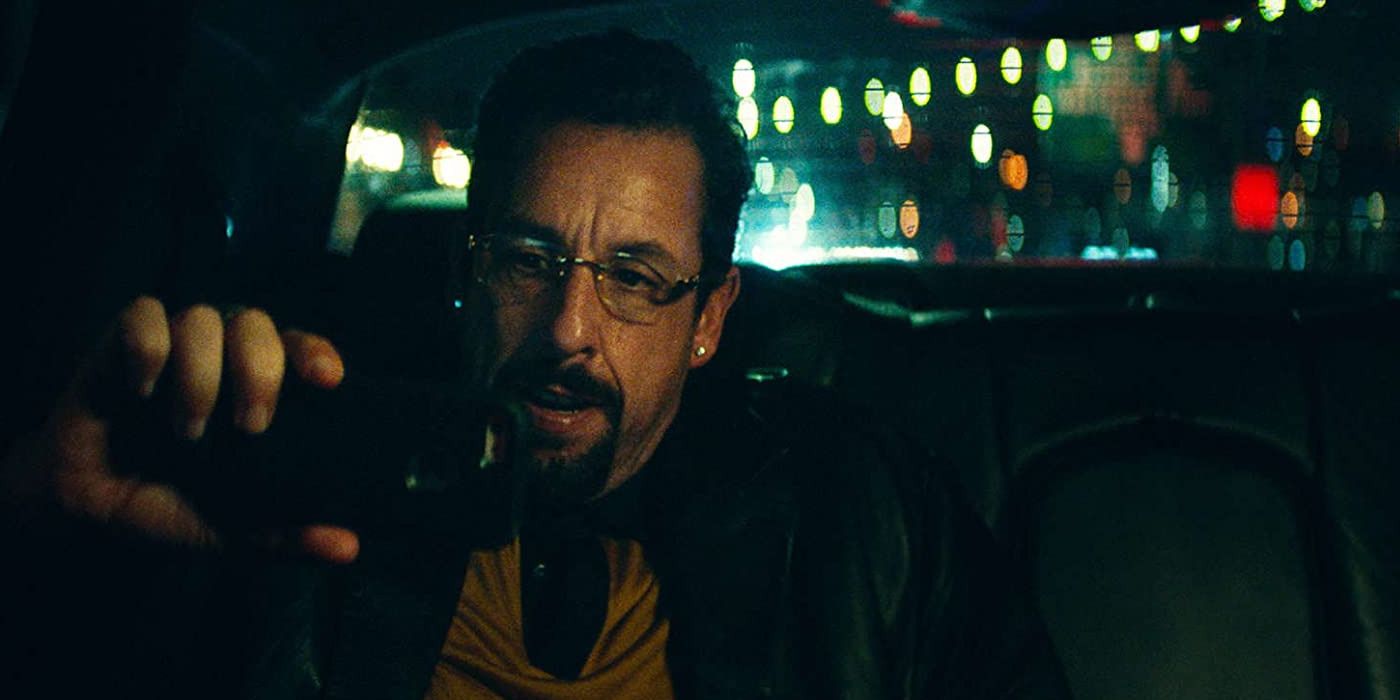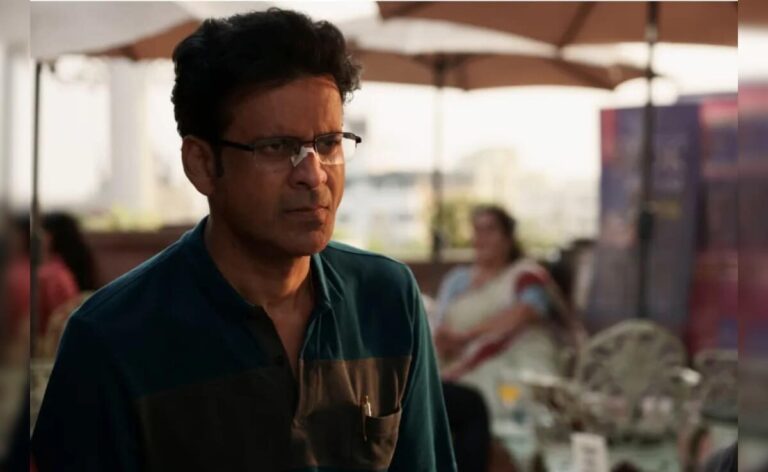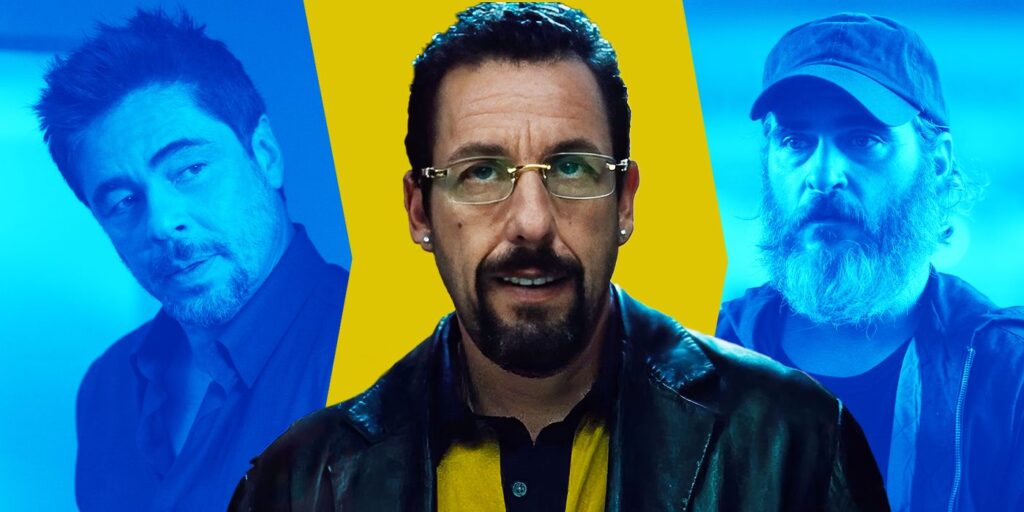
There’s truly nothing worse than a film that doesn’t stick the landing in its final few moments. Even if a project is incredibly well constructed and has a compelling hook, viewers are unlikely to leave the theater pleased if the story does not wrap up in a satisfying way. While a bad movie can certainly benefit from a particularly memorable ending, a great one can land it on the list of the greatest thrillers ever made.
Thank you for reading this post, don't forget to subscribe!
A great thriller requires an ending that is both emotionally and narratively satisfying. In addition to ensuring that the audience is invested in the hero, thrillers need to keep the audience on the edge of their seats until the very end. Of course, these scenes also need to be checked out logically so they do not become criticized for their plot holes. Here are ten thrillers with perfect endings.
18 ‘Hardcore’ (1979)
Directed by Paul Schrader
Hardcore is one of the more controversial films of the 1970s, as it was centered on a lonely father (George C. Scott) who begins searching for his daughter, who has become involved within the adult entertainment industry. Although it initially presents itself as a straightforward neo-noir thriller, Hardcore becomes a much more vile, repugnant story in its last act, which features some of the most violent moments of the “New Hollywood” era.
Paul Schrader has a talent for showing the limits that flawed men go to, and is able to blur the line between good and evil in very interesting ways. While Hardcore does offer viewers some relief by confirming to them that the mystery has been solved, it leaves things ambiguous regarding whether or not the end justifies the means. Hardcore ends on such a shocking note that it is difficult to become unaffected.
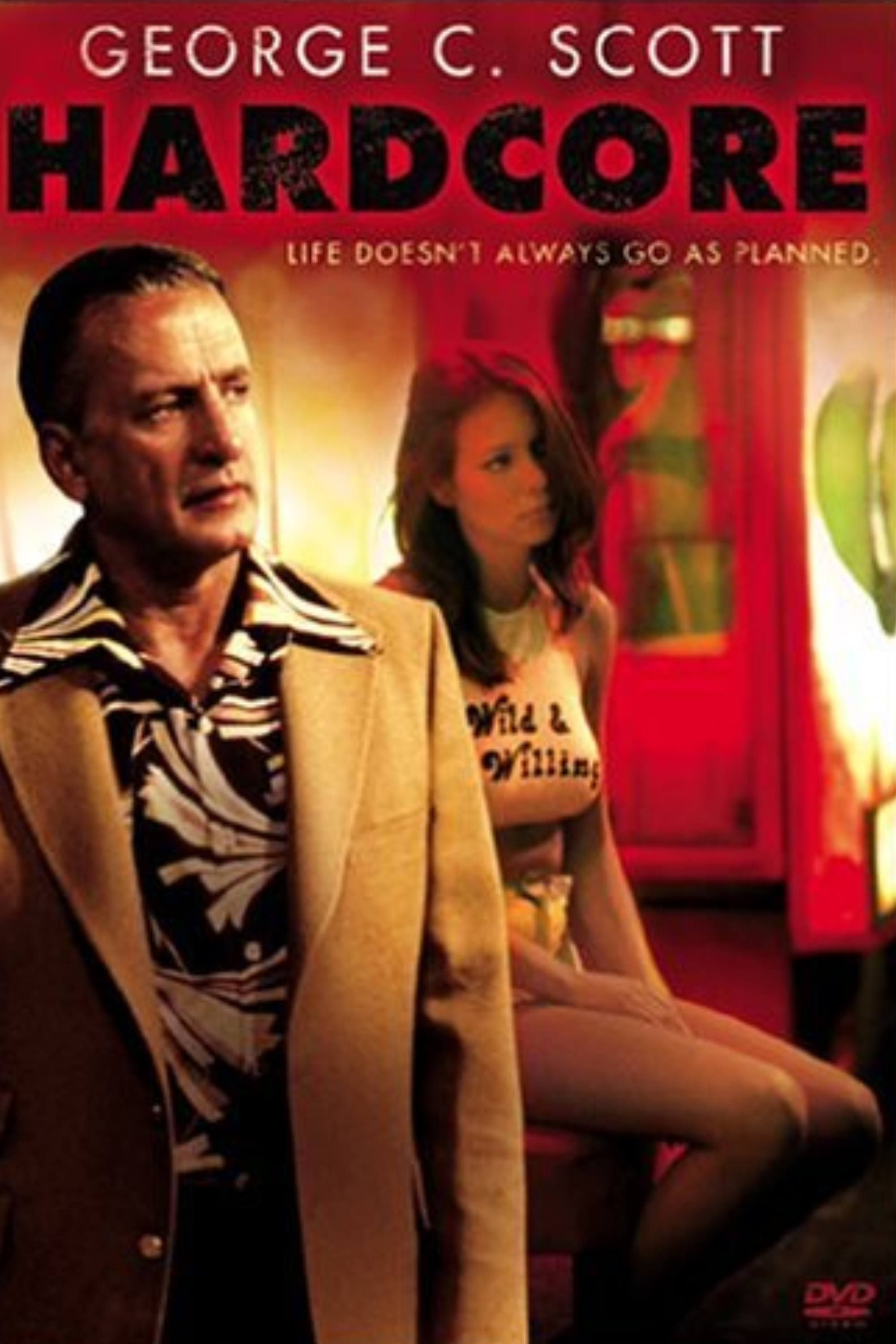
Hardcore
- Release Date
- February 9, 1979
- Director
- Paul Schrader
- Runtime
- 108
Rent on Apple TV
17 ‘Parasite’ (2019)
Directed by Bong Joon-ho
Parasite was a popular culture phenomenon, as it broke records to become the first international language film to win the Academy Award for Best Picture, and the first film from South Korea to get significant attention from American award ceremonies. Even if the locational context is different, Parasite explored the fundamental evil of class warfare, as those that have less will always want to rise within the ranks to gain more.
The fact that Parasite ends on such a violent note is not that surprising, as director Bong Joon-ho did a great job at setting up the social and economic tension that would result in a conflict between the two central families, who are at radically different levels of the social hierarchy. Although Parasite was almost immediately accepted as being a genuine modern classic, its dark ending confirms the bleak worldview that makes Bong such an inventive storyteller.
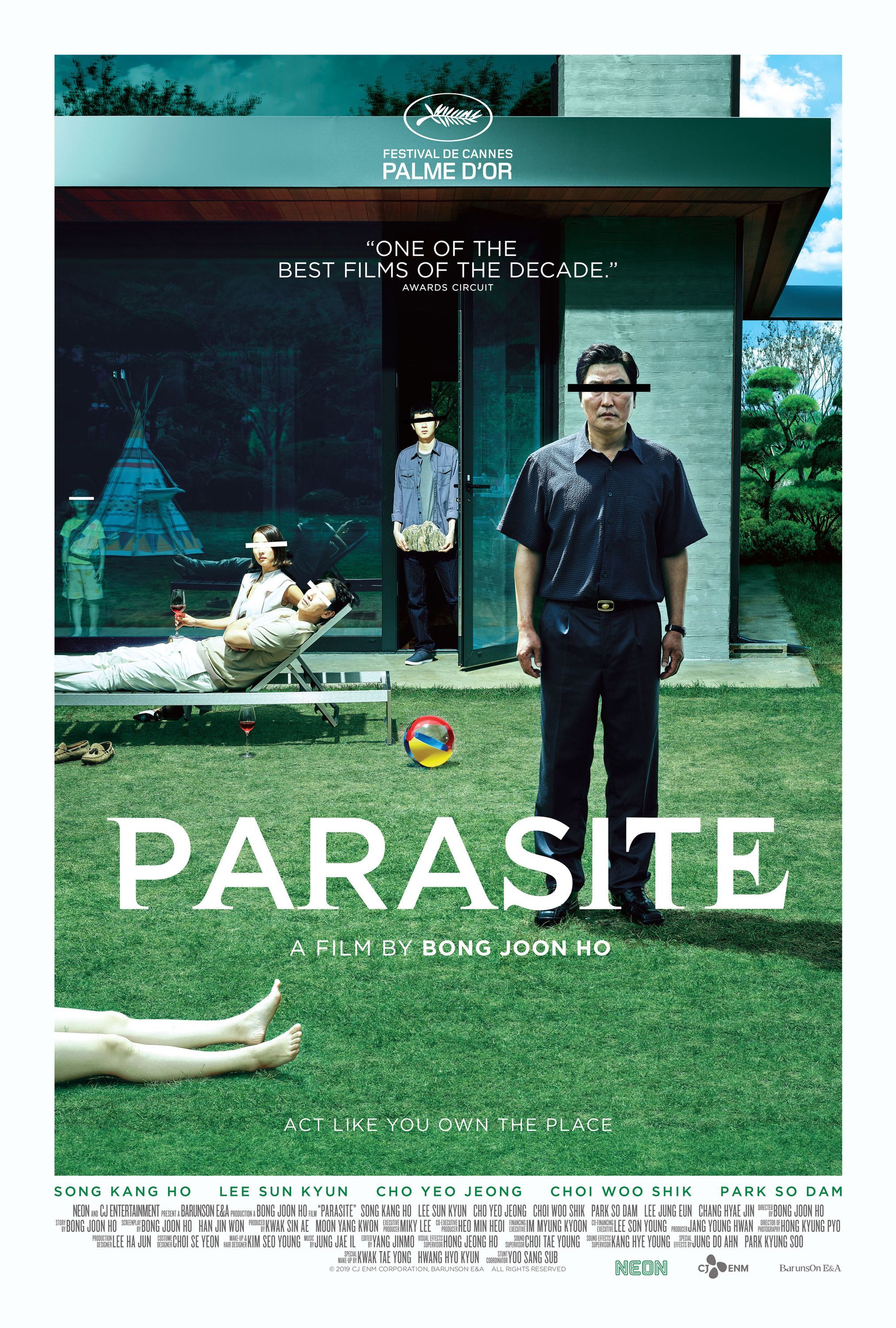
- Release Date
- November 8, 2019
- Director
- Bong Joon Ho
- Cast
- Yeo-Jeong Jo , Myeong-hoon Park , Jeong-eun Lee , Sun-kyun Lee , Ji-so Jung , So-dam Park , Keun-rok Park , Kang-ho Song , Ji-hye Lee , Woo-sik Choi , Seo-joon Park , Hye-jin Jang
- Runtime
- 132 minutes
16 ‘Se7en’ (1995)
Directed by David Fincher
Se7en isn’t the only film about serial killers that was directed by David Fincher, but it certainly established a template that he would use to great success later on with Zodiac, The Girl With The Dragon Tattoo, and even the Netflix series Mindhunter. Although the shocking ending to Se7en has been parodied countless times in the decades since its initial release, that doesn’t make it any less effective for those watching it for the first time.
Se7en ends with a major twist, in which David Mills (Brad Pitt) discovers that the serial killer John Doe (Kevin Spacey) has killed Mills’ wife (Gwyenth Paltrow). Although David is able to get his revenge, his partner, William Somerset (Morgan Freeman), understands that continuing the cycle of violence that Doe had imagined in no way grants them with a moral victory of any sort.
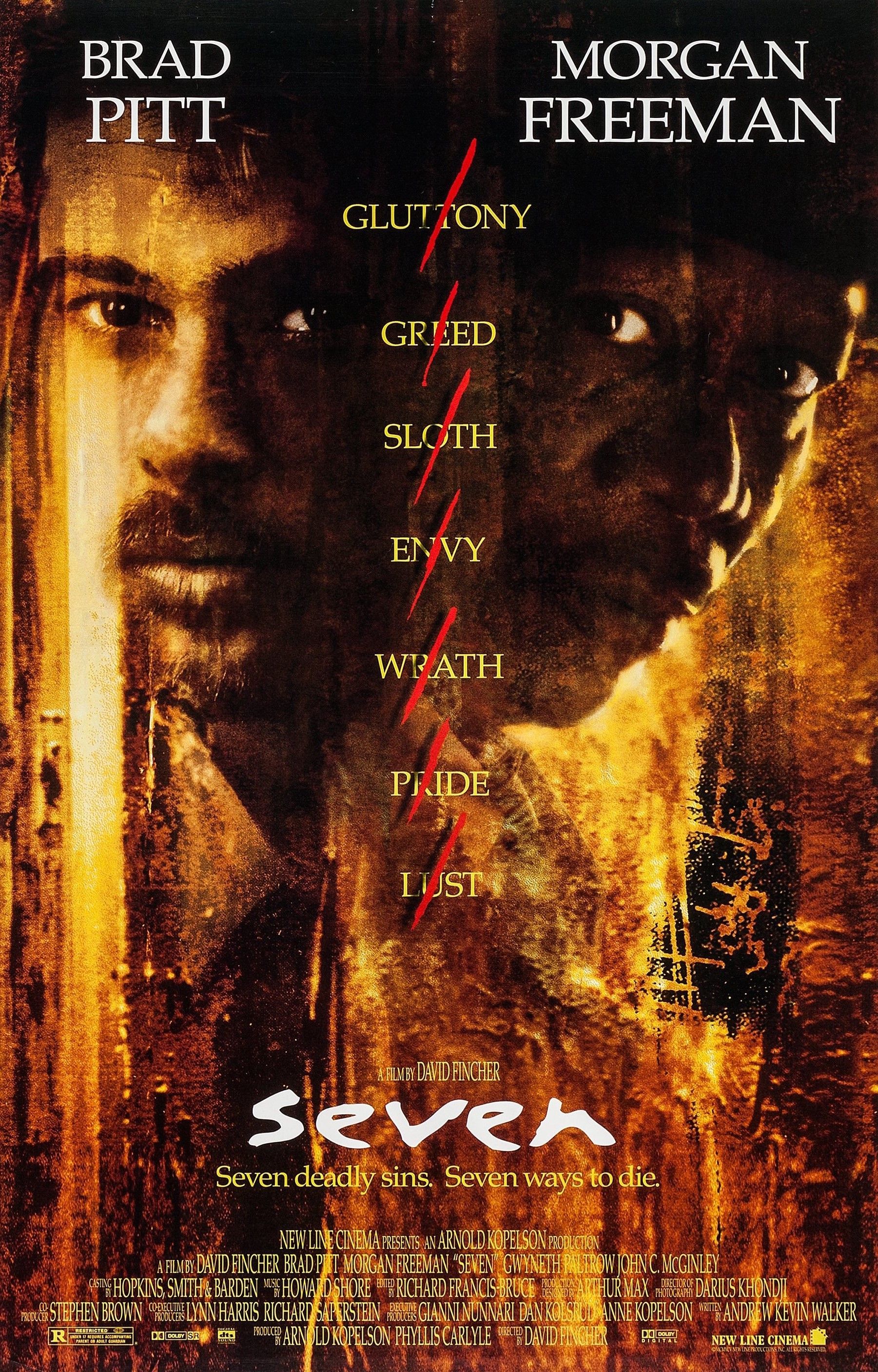
Se7en
- Release Date
- September 22, 1995
- Runtime
- 127 minutes
15 ‘Blue Velvet’ (1986)
Directed by David Lynch
Blue Velvet is the film that put David Lynch on the map as a master of the noir genre, and served as a major comeback after his adaptation of Frank Herbert’s Dune ended up becoming a costly failure. The film centers on the young man Jeffrey (Kyle MacLachlan), whose return to his hometown turns into a nightmarish mystery when he discovers a wounded femme fatale (Isabella Rossellini) and a ruthless gangster (Dennis Hopper).
The ending of Blue Velvet is an ironic one, as it is clear that Jeffrey has not returned to the idealized version of small town life that he would appear to have achieved based on the aesthetics alone. As with many of the entries in Lynch’s broader filmography, Blue Velvet has a degree of dark humor in how it explores that the American dream is simply a lie designed to cover up a history of violence.
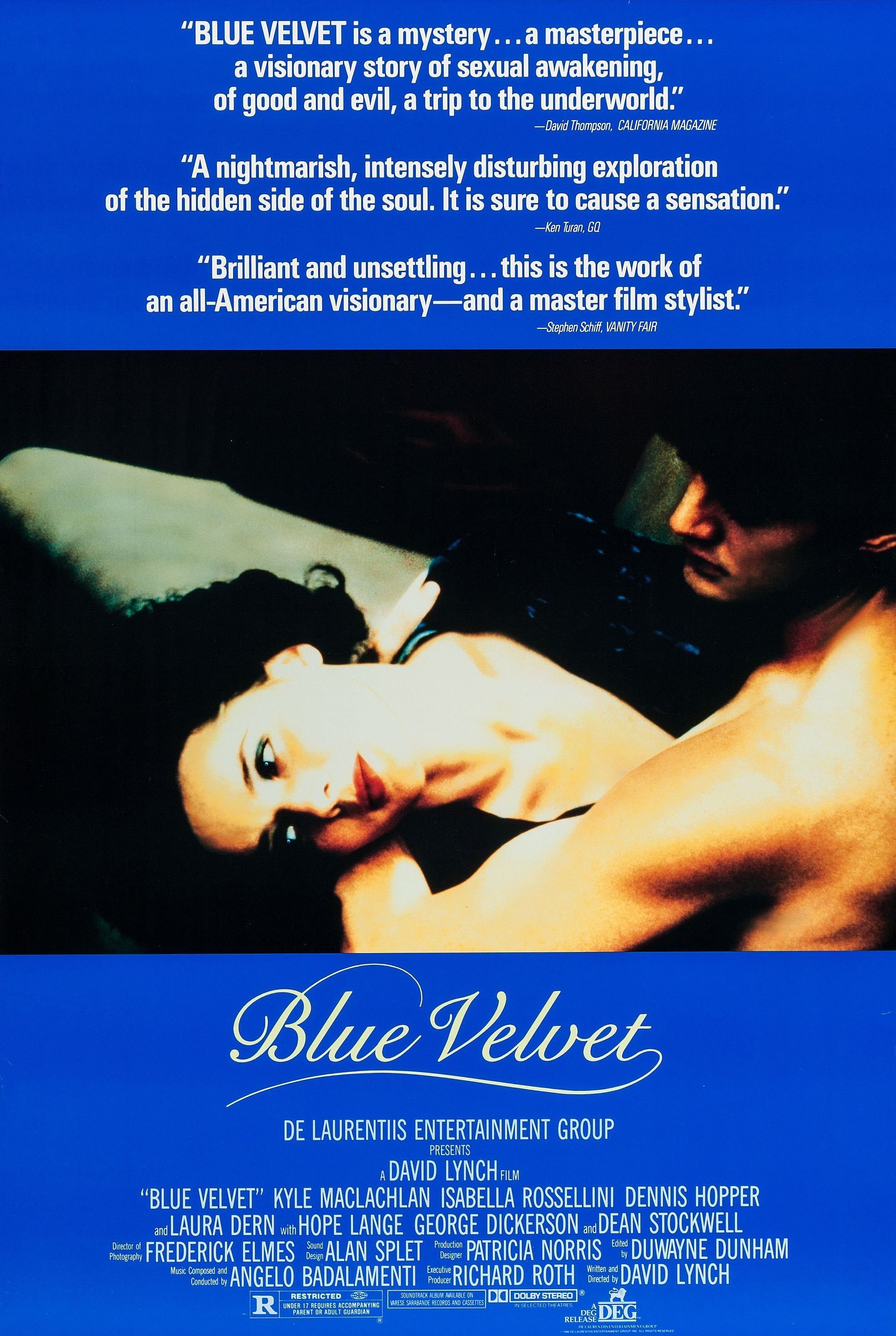
- Release Date
- January 1, 1986
- Director
- David Lynch
- Runtime
- 120 minutes
14 ‘Civil War’ (2024)
Directed by Alex Garland
Civil War is certainly one of the year’s most thought-provoking films, as Alex Garland imagined a version of a divided America that sadly begins to resemble reality more and more with each passing day. The film concludes on a particularly shocking note, as it involves the President of the United States (Nick Offerman) being executed by a rebel force after a journalist (Wagner Moura) asks him for a quote.
Civil War explores the notion of objectivity in journalism, and how it can become impossible to not choose a side when a war divides the nation into factions. Garland brilliantly does not confirm what direction the country will be taking next, as it is up to the viewers to determine whether they believe that any form of civility could be once again retained. Nonetheless, the use of Suicide’s “Dream Baby Dream” is a particularly memorable needle drop.
13 ‘North by Northwest’ (1959)
Directed by Alfred Hitchcock
The iconic Alfred Hitchcock was behind many of classic Hollywood’s greatest thrillers, but his best arguably remains 1959’s North by Northwest. Cary Grant stars in a case of mistaken identity following Roger Thornhill, an ad executive pursued by ruthless spy Phillip Vandamm (James Mason) after being confused for a government agent.
North by Northwest is the blueprint for the spy thriller subgenre, full of ambitious sequences surrounded by expertly crafted tension. The now-legendary and much-referenced ending takes place atop Mount Rushmore, where Thornhill and his love interest, Eve Kendall (Eva Marie Saint), face Vandamm and his men. North by Northwest‘s final sequence is exciting and bold, a direct predecessor to the overblown spectacle of current action movies. Confidently led by Hitchcock, North by Northwest‘s ending is stylish, exhilarating, and crowd-pleasing.
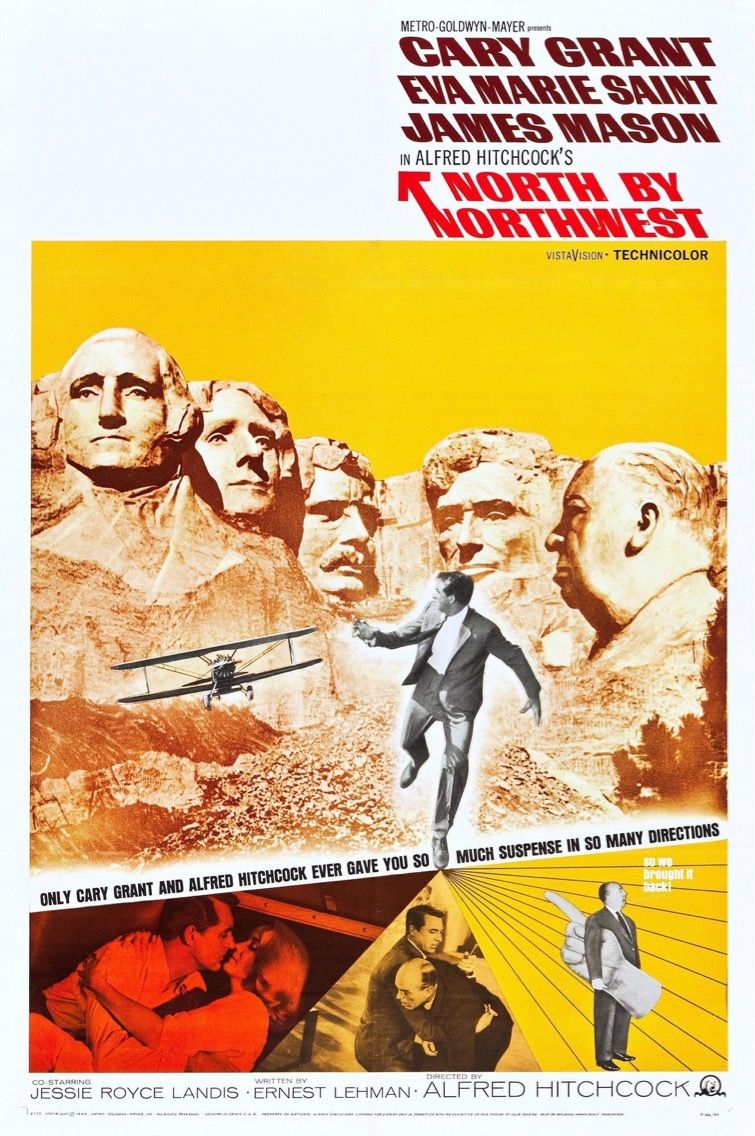
- Release Date
- December 18, 1959
- Cast
- Cary Grant , Eva Marie Saint , James Mason , Jessie Royce Landis , Leo G. Carroll , Josephine Hutchinson
- Runtime
- 136 minutes
12 ‘The Silence of the Lambs’ (1991)
Directed by Jonathan Demme
The late Jonathan Demme delivered one of the best thrillers in cinematic history with 1991’s The Silence of the Lambs. Adapted from Thomas Harris’ eponymous novel, the film centers on Clarice Starling (Jodie Foster), an FBI trainee tasked with catching a serial killer targeting women. To gain insight into her target, Starling seeks the advice of convicted serial killer and cannibal genius Hannibal Lecter (Anthony Hopkins).
Few thrillers are as influential or outright masterful as The Silence of the Lambs. The film builds up to a tense-filled confrontation that sees Starling facing the killer in a pitch-black basement. After the calm arrives after the storm, the film pulls one final twist, revealing Lecter escaped imprisonment shortly before Starling’s confrontation with the killer. The closing shot sees Starling and a Lecter having one final conversation on the phone before the cannibal leaves to seek his revenge. The sight of Starling calling for “Doctor Lecter” while the camera pans away and Howard Shore‘s score kicks in is chilling and instantly unforgettable, a masterclass in how to end a movie with a subtle yet poignant bang.
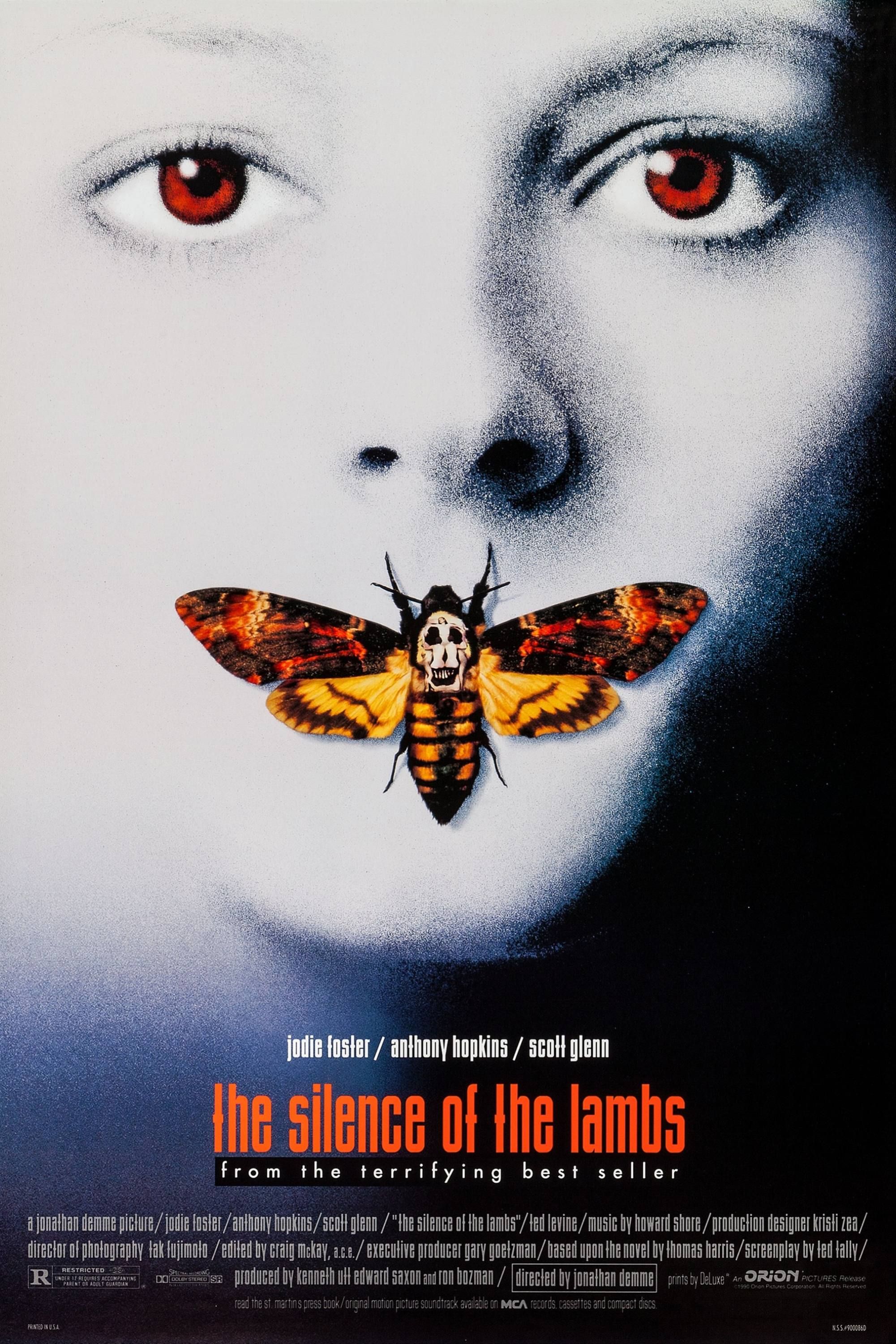
The Silence of the Lambs
- Release Date
- February 14, 1991
- Runtime
- 118 Minutes
11 ‘The Night of the Hunter’ (1955)
Directed by Charles Laughton
The underrated Robert Mitchum delivers a tour-de-force performance as serial killer Harry Powell in the 1955 noir The Night of the Hunter. The plot follows Powell as he poses as a preacher to get close to John (Billy Chapin) and Pearl Harper (Sally Jane Bruce), two children unwittingly hiding a large sum of stolen money hidden by their late father. The Night of the Hunter has been a profound influence on many of cinema’s best modern directors, changing film noir forever.
The ending sees Powell cornering Pearl and John in the home of take-no-prisoners Rachel Cooper (Lilian Gish), who proves too tough for him to crack and bests him, eventually calling the police on him. Narrowly avoiding an angry mob, Powell is taken away, not before the prison hangman vows revenge against him. The promise of greater punishment for such a despicable character clashes with the hopeful closing shot of Pearl and John celebrating Christmas with Rachel, a heartwarming ending after all the carnage. The Night of the Hunter uses an eerie atmosphere throughout, leading to an anxious finale that packs quite an emotional punch.
- Release Date
- July 26, 1955
- Director
- Charles Laughton
- Cast
- Robert Mitchum , Shelley Winters , Lillian Gish , James Gleason
- Runtime
- 92 Minutes
Watch on Criterion
10 ‘Vertigo’ (1958)
Directed by Alfred Hitchcock
Vertigo may be the single most intense film of Alfred Hitchcock’s unparalleled career, which is no small statement considering that he is known as “The Master of Suspense.” While the film itself has no shortage of memorable set pieces, the ending of Vertigo features Jimmy Stewart’s Scottie Ferguson confronting his fear of heights during a climactic chase. It’s a paranoid-inducing moment that serves as a great way of calling back to the traumatic incident that initiated the story.
Vertigo managed to make appropriate changes to the novel in order to pull off the perfect ending. While it’s always controversial when a filmmaker chooses to edit significant portions of the original source material, Hitchcock knew what changes needed to be made to Vertigo to ensure that even book readers were on their toes until the very end of the story.
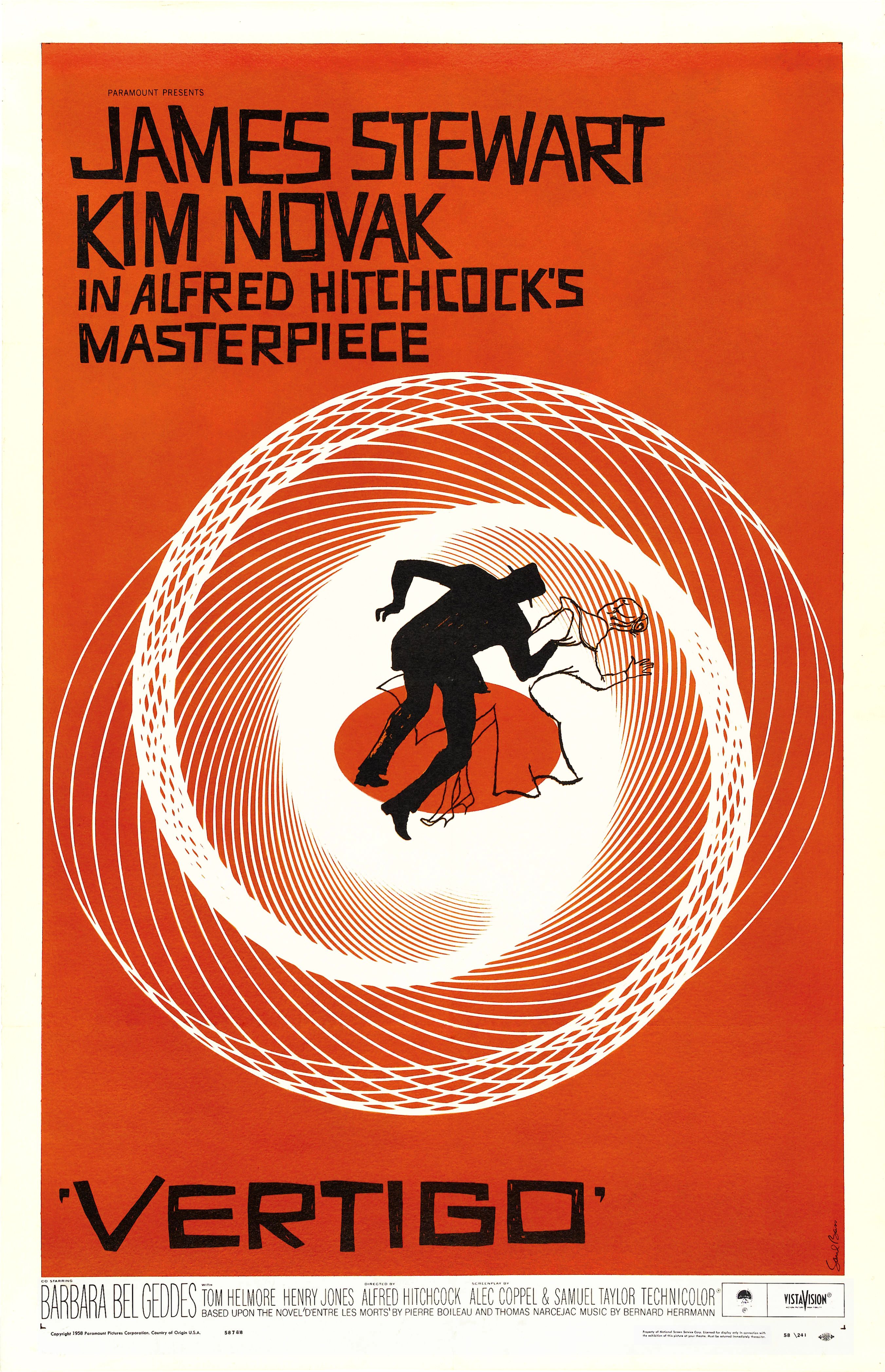
Vertigo
- Release Date
- May 28, 1958
- Cast
- James Stewart , Kim Novak , Barbara Bel Geddes , Tom Helmore , Henry Jones , Raymond Bailey
- Runtime
- 128 mins
9 ‘Taxi Driver’ (1976)
Directed by Martin Scorsese
Taxi Driver created one of the most interesting anti-heroes in cinematic history, as Robert De Niro’s depiction of Travis Bickle was both oddly alluring and deeply terrifying. The ending of Taxi Driver does a great job of confirming its protagonist’s moral ambiguity. Although Travis is hailed by the media as a hero for his role in taking down some criminals, it’s clear that the opportunity to engage in violence was empowering to him. The film is willfully ambiguous about what steps Travis will take next and what effects he could have on the city.
Taxi Driver’s ending also confirms that Travis has not completely recovered from his post-traumatic stress disorder that he developed while fighting in the Vietnam War. The ending of Taxi Driver is so perfect because, years after its release, cinephiles can still debate whether it was really a “happy one.”
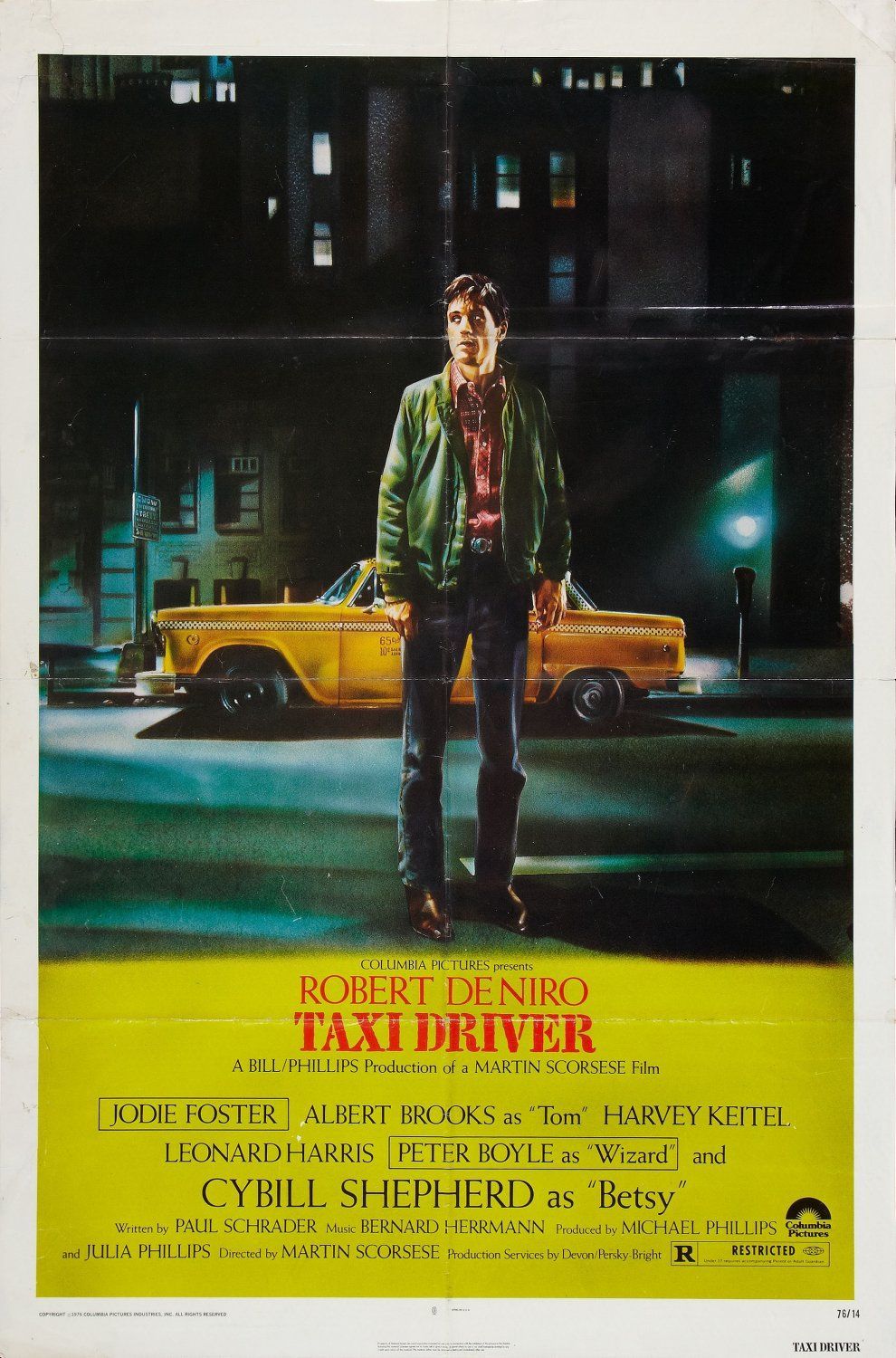
- Release Date
- February 9, 1976
- Runtime
- 114 Minutes
8 ‘Blow Out’ (1981)
Directed by Brian De Palma
Brian De Palma is in many ways the apparent heir apparent to Hitchcock, as he similarly features high-stakes moments of suspense and espionage. De Palma has no shortage of shocking scenes in his filmography, but Blow Out contains one of the most grim final shots in film history. After fighting to save her, John Travolta’s Jack has to watch his love interest, Sally (Nancy Allen), die as fireworks explode in the background. It’s a heartbreaking scene that brilliantly uses slow-motion camerawork to its advantage.
De Palma confirms that Jack is a changed man in the subsequent scene, in which he returns to his work on the production of a low-budget horror film yet lacks any excitement about the project. The film works as a brilliant analysis of the surveillance state and a crushing critique of the evils of political corruption.
7 ‘Heat’ (1995)
Directed by Michael Mann
Heat was a climatic film, as it finally united Robert De Niro and Al Pacino on screen together for the first time. While the two had both appeared in different segments of The Godfather: Part II, seeing Neil (De Niro) and Vince (Pacino) finally exchange words with one another was an exciting moment for cinephiles anywhere. While the diner scene is perhaps the film’s most famous moment, Heat ends with a climactic chase in which Neil is finally brought to justice.
Director Michael Mann does a great job of drawing the parallels between Neil and Vince, showing that the two men are not quite as different as they may have assumed that they were. While Vince is relieved that he can finally stop worrying about what Neil will do next, the two men show a brief twinge of respect for one another.
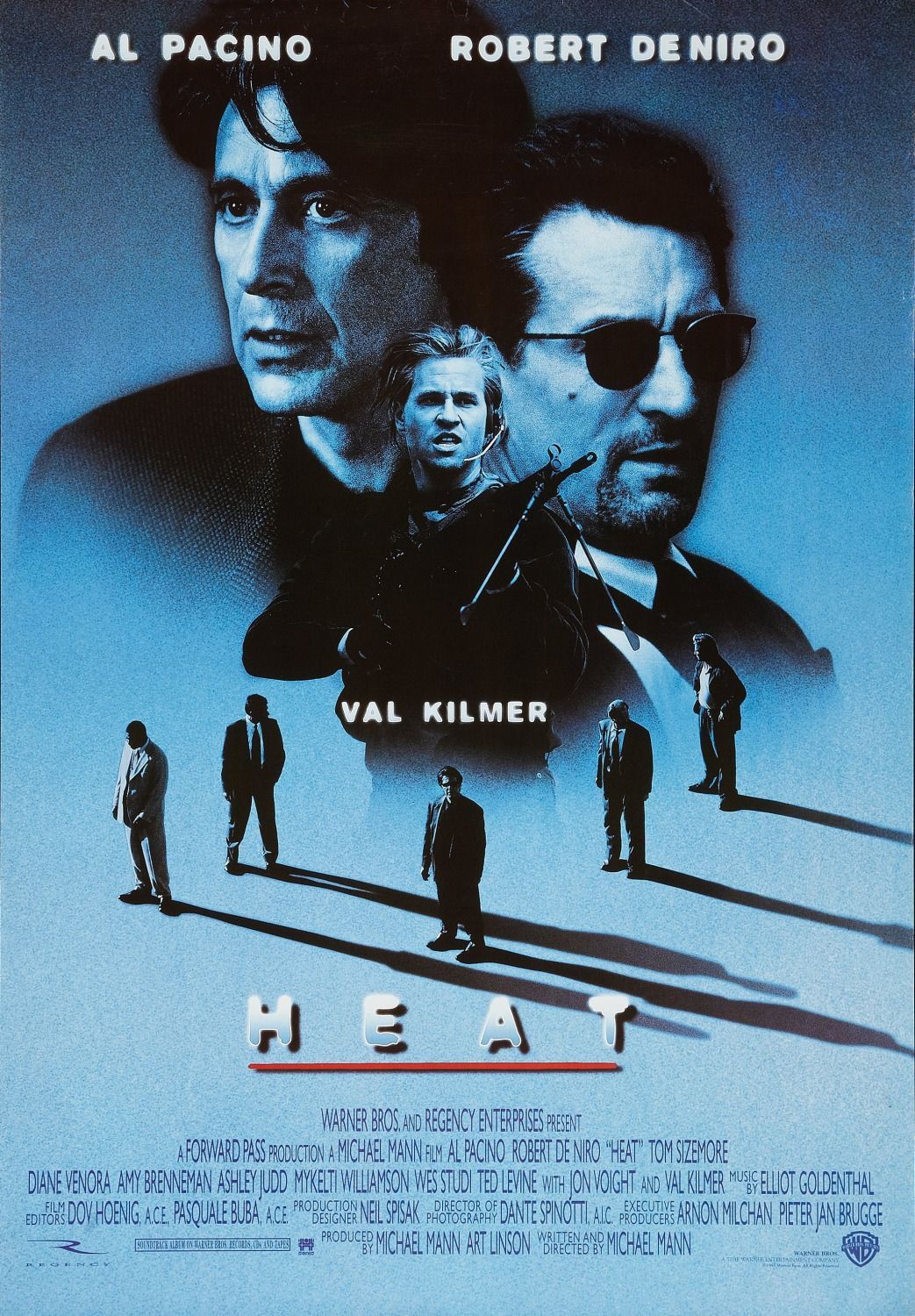
Heat
- Release Date
- December 15, 1995
- Director
- Michael Mann
- Runtime
- 170 minutes
6 ‘The Usual Suspects’ (1995)
Directed by Bryan Singer
When it comes to movie plot twists, there are few movies in history that are more successful than The Usual Suspects. The film’s entire story revolved around the small-time criminal Verbal (Kevin Spacey) feeding a story about the mastermind “Keyser Soze” to the cops, suggesting that the unseen menace was to blame for a series of robberies that had been haunting the area. In the end, it’s revealed that Verbal is Soze and that he’s managed to elude justice once more.
The Usual Suspects ends on such a powerful note that viewers will immediately want to watch the film again to see how it was foreshadowed. Screenwriter Christopher McQuarrie did a brilliant job at laying subtle hints throughout as to what Verbal’s real intentions are, which makes the film very rewatchable after all these years since its initial theatrical release.
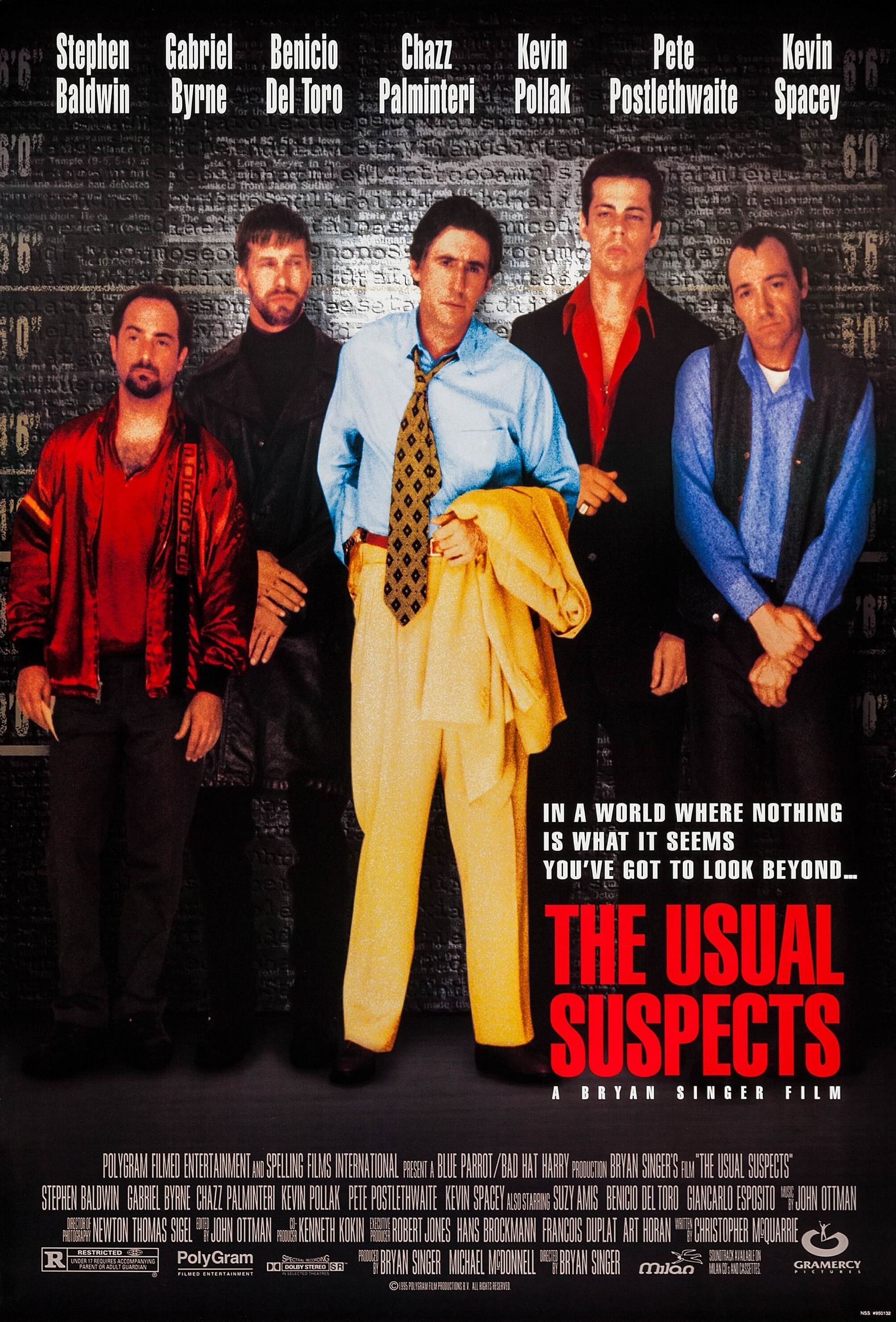
The Usual Suspects
- Release Date
- August 16, 1995
- Runtime
- 106 minutes
5 ‘Oldboy’ (2003)
Directed by Park Chan-wook
Park Chan-wook’s action thriller Oldboy is one of the most upsetting films ever made, and not just because of its graphic violence. While the infamous “hallway fight” is certainly quite pulse-pounding, Oldboy concludes with a shocking plot twist that completely inverts the revenge movie narrative. After learning secrets about the man who he once wronged, the main character, Oh Dae-Su (Choi Min-Sik), learns that the woman that he has fallen in love with is actually his daughter. It’s an ending that twists all notions of moral continuity and forces the viewer to look back at earlier events in a new light.
Oldboy ’s ending is crushing because of the investment that the audience has in Dae-Su’s decision, which makes the ambiguous nature of his memory more distressing. While Spike Lee attempted to remake the film with Josh Brolin in the leading role, the 2013 reboot didn’t quite capture the magnanimous shock that the original masterpiece did.
Oldboy
- Release Date
- Director
- Park Chan-wook
- Cast
- Choi Min-sik , Yoo Ji-tae , Kang Hye-jeong , Kim Byeong-Ok
- Runtime
4 ‘Brick’ (2005)
Directed by Rian Johnson
Long before he made science fiction hits like Looper and Star Wars: The Last Jedi, Rian Johnson brought the neo-noir genre to high school with his extraordinary directorial debut, Brick. The film centers around the high school loner Brendan (Joseph Gordon-Levitt), whose search for his missing girlfriend leads him to discover a ring of drug dealers. In the end, Brendan learns that his girlfriend Emily is pregnant with his child. The look of sadness and horror that creeps across Gordon-Levitt’s face makes it even more upsetting.
The ending of Brick is a clever homage to classic noir films like The Maltese Falcon and The Big Sleep, particularly due to the use of voiceover from Gordon-Levitt’s character. A classical noir film typically ends with the main character growing in their cynicism, and that is certainly true of what Brendan experiences at the end of Brick.
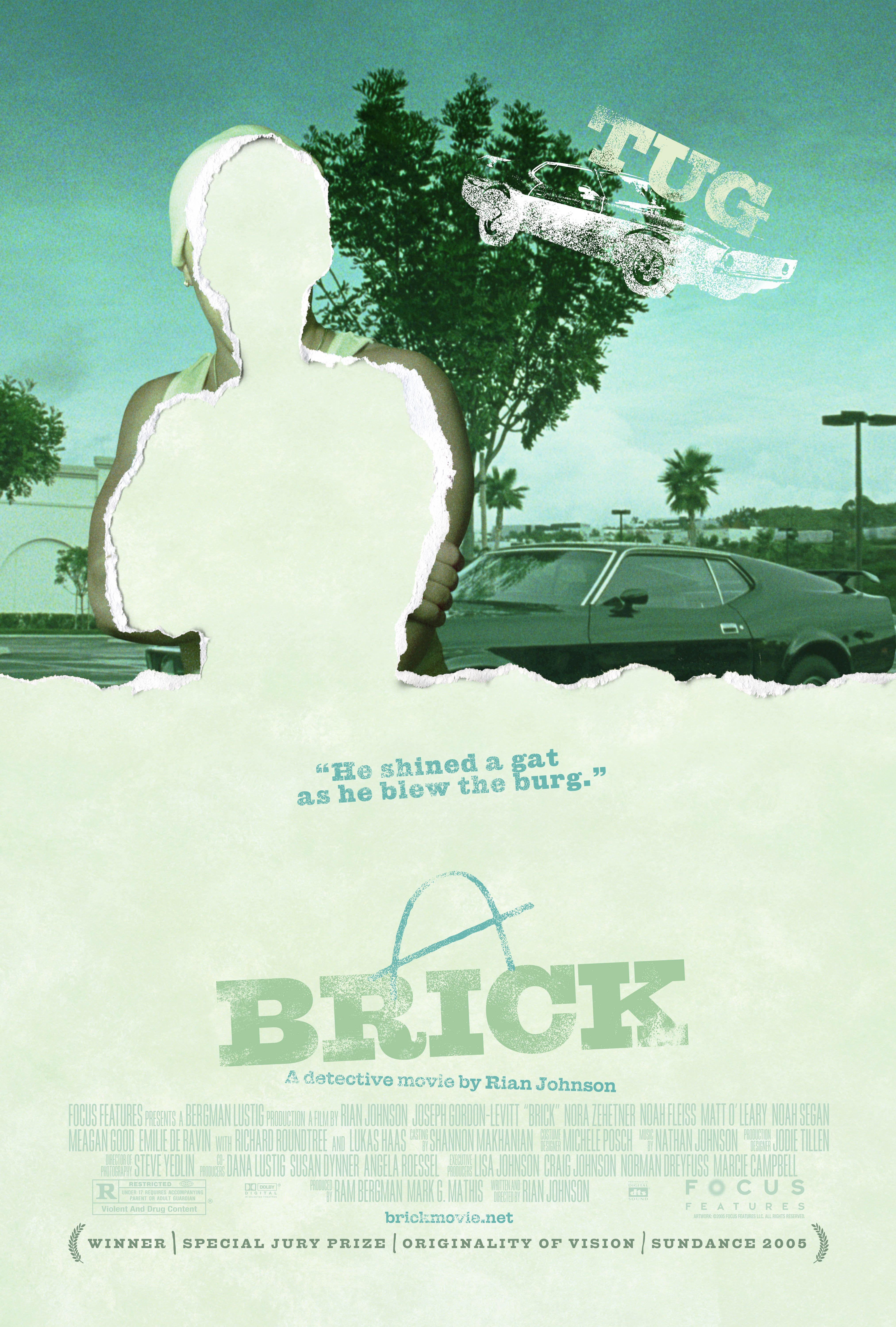
Brick
- Release Date
- April 7, 2006
- Director
- Rian Johnson
- Actors
- Joseph Gordon-Levitt, Nora Zehetner, Noah Fleiss, Matt O’Leary, Noah Segan, Meagan Good, Emilie de Ravin, Richard Roundtree, Lukas Haas
- Run Time
- 110 minutes
Rent on Apple TV
3 ‘Sicario’ (2015)
Directed by Denis Villeneuve
Sicario isn’t just a great action thriller, but a profound examination of the cyclical nature of violence on the border between the United States and Mexico. Sicario ends in a haunting way that shows why the drug war is allowed to continue. Although originally Denis Villeneuve and Taylor Sheridan had a completely different ending in mind, Sicario ends with the bounty hunter Alejandro (Benicio Del Toro) avenging the death of his family and forcing the FBI Agent Kate Mercer (Emily Blunt) to keep her lips closed.
The ending of the film served as the perfect setup for Alejandro to return in the terrific sequel Sicario: Day of the Soldado, which explored his further exploits with the corrupt CIA operative Matt Graves (Josh Brolin). Both Brolin and del Toro are expected to reprise their roles once more for the highly anticipated third installment in the Sicario trilogy.
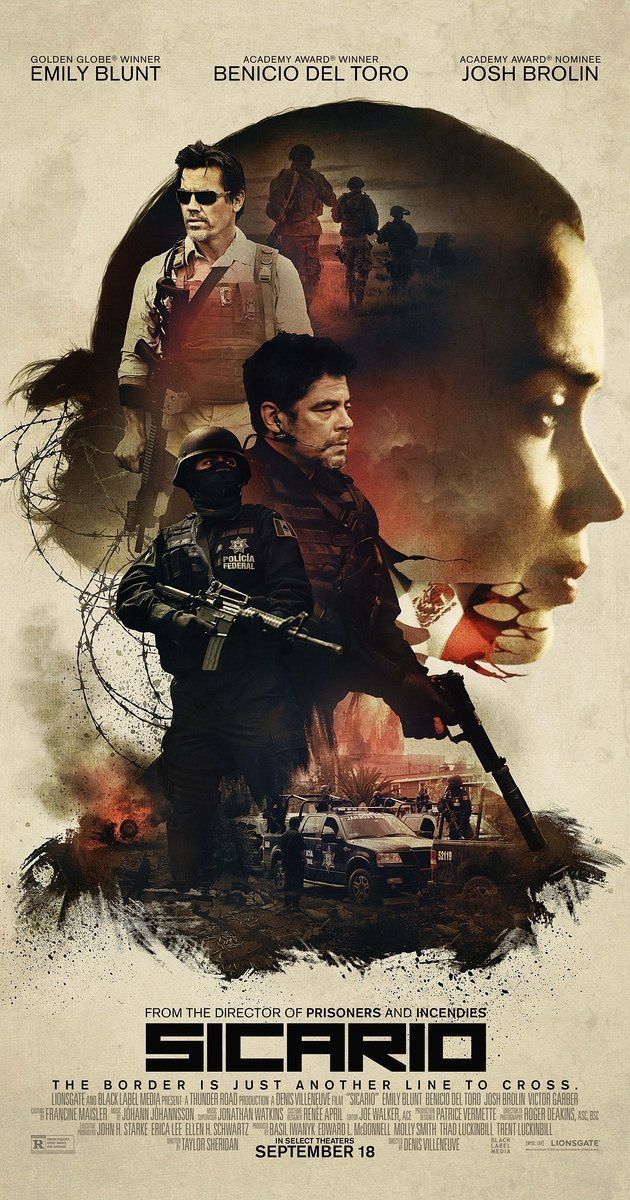
Sicario
- Release Date
- October 2, 2015
- Director
- Denis Villeneuve
- Runtime
- 121 Minutes
2 ‘You Were Never Really Here’ (2018)
Directed by Lynne Ramsay
You Were Never Really Here is a haunting examination of post-traumatic stress disorder and masculine vulnerability and features one of the greatest performances of Joaquin Phoenix’s career. Phoenix stars as the ex-veteran Joe, who works as a contract hitman who helps rescue kidnapped children from sex trafficking rings. You Were Never Really Here ends with a brutal moment that indicates Joe is set to continue on his current path. Although it was briefly teased that he may want to commit suicide, You Were Never Really Here suggests a slightly more optimistic future for the troubled protagonist.
Phoenix’s subtle performance makes the ending of You Were Never Really Here even more emotional than it would have been otherwise. Although Joe is not a very verbose character, Phoenix is able to convey his emotional state through the power of his physical expressions.
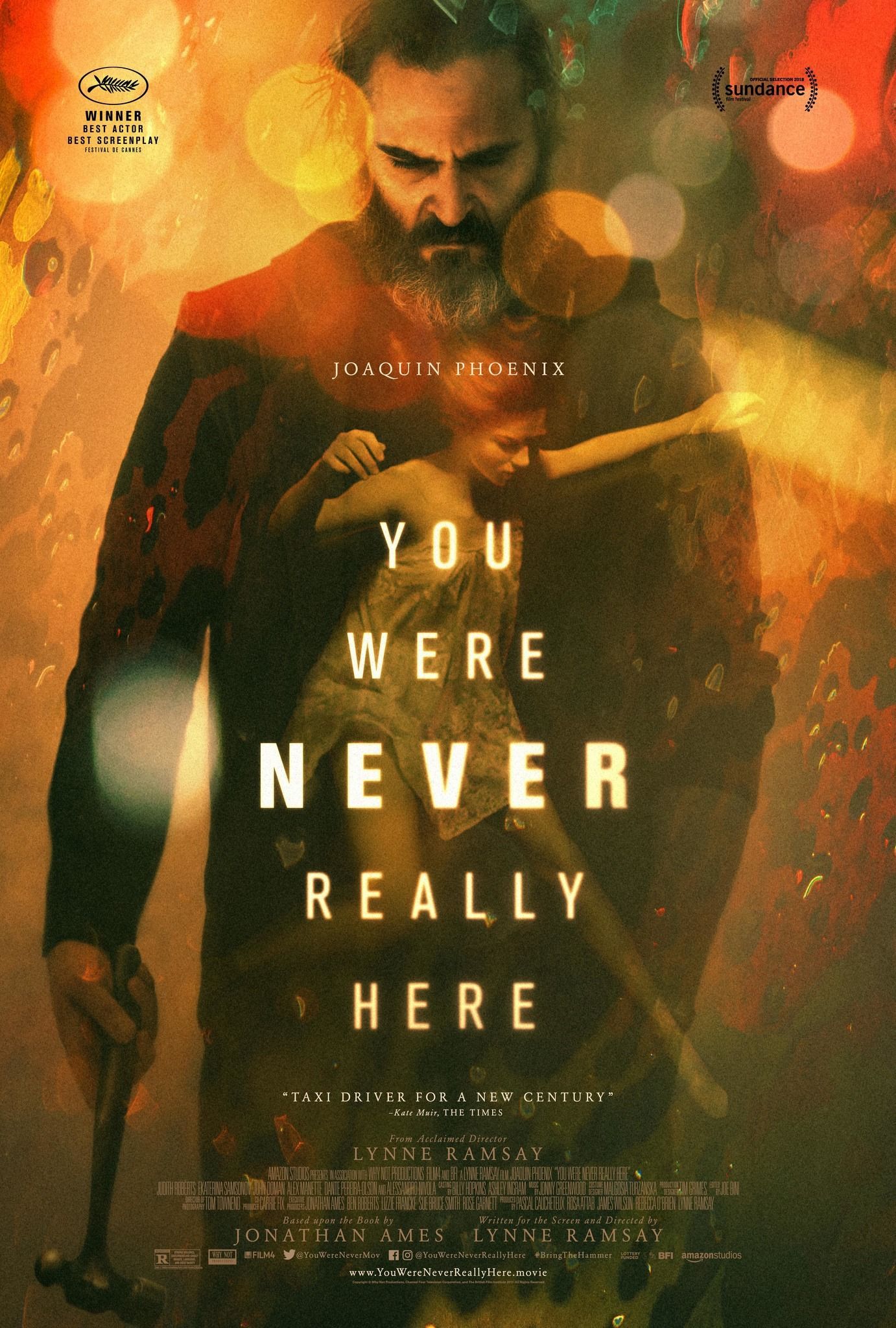
- Release Date
- April 6, 2018
1 ‘Uncut Gems’ (2019)
Directed by Josh and Benny Safdie
Although Punch-Drunk Love and The Meyerowitz Stories were both terrific, Uncut Gems served as conclusive proof that Adam Sandler was a great dramatic actor. While he’s best known for playing likable man-children, Sandler showed his dark side in Uncut Gems with his performance as the erratic gambler Howard. Howard is forced to meet a shocking fate when he is gunned down during the ending of Uncut Gems. When looking back at the story, there was never going to be a way for Howard to escape without facing the consequences of his actions; his luck finally runs out at the most inopportune moment imaginable.
The ending of Uncut Gems succeeds in bringing the film’s relentless pacing to an abrupt conclusion. Despite the graphic nature of Howard’s demise, Uncut Gems has become one of the most popular films that A24 has ever produced and scored high numbers when it was re-released in IMAX theaters.
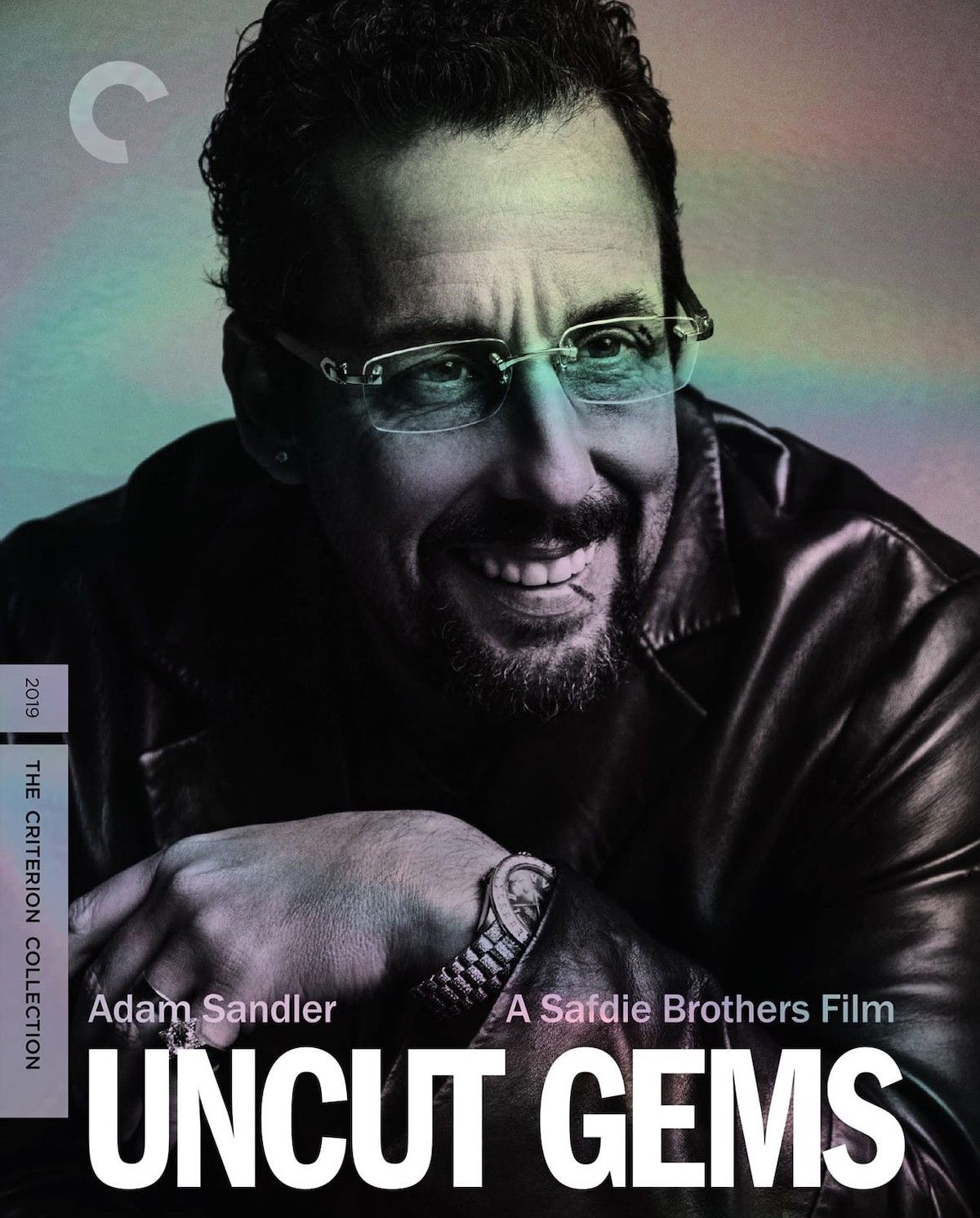
- Release Date
- August 30, 2019
- Director
- Ben Safdie , Joshua Safdie
- Runtime
- 130 minutes
2024-12-12 03:34:14

